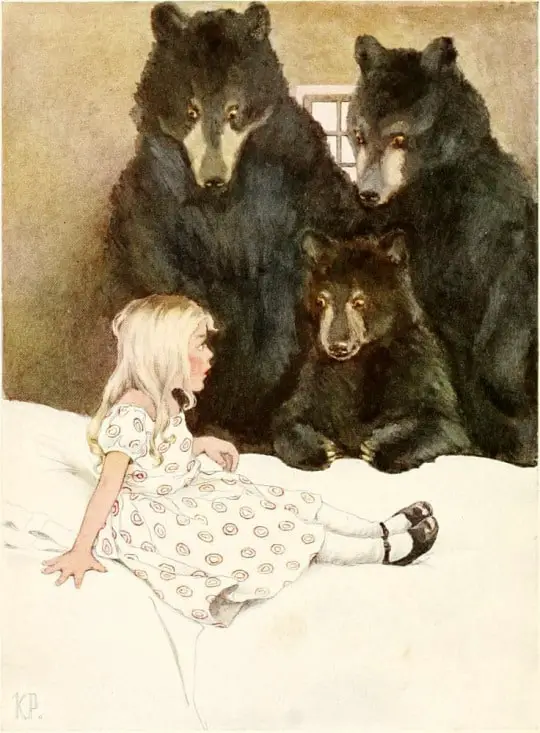This month I wrote a post on Teaching Kids How To Structure A Story. Today I continue with a selection of mentor texts to help kids see how it works. Let’s look closely at a classic fairytale, Goldilocks and the Three Bears.
Years later, at Goldilocks’ house. pic.twitter.com/PEa3WhhYZm
— Dick King-Smith HQ (@DickKingSmith) July 19, 2020
snow white broke into a house in the woods and did chores. wow, boring. goldilocks, the true hero, broke in to a house, made some judgements, and then took a nap. i have no notes
— nash flynn (@itsnashflynn) May 25, 2021
STORY STRUCTURE OF GOLDILOCKS AND THE THREE BEARS
Here’s the version I’m looking at:
Goldilocks, wildflower picker, enters the snug little cottage in the woods, knowing or not knowing whose it is, the owners absent as if by arrangement. Three pots of porridge, three chairs, three beds. Too hot, too cold, too high, too wide, too hard, too soft. Just right. The rule of three. G eats, breaks, crawls in. The owners return. There has been an intruder!
The Goldilocks Variations from The American Reader
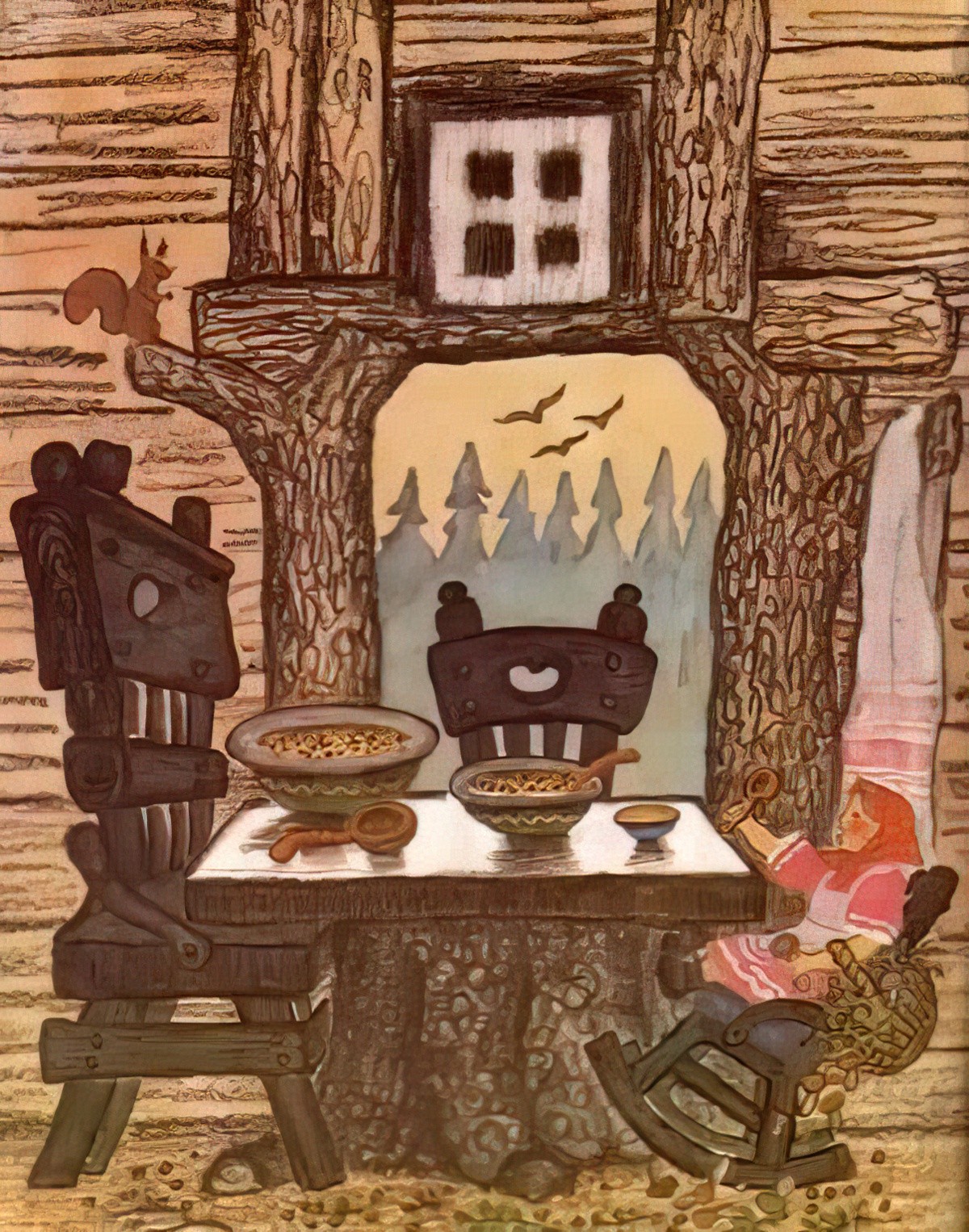
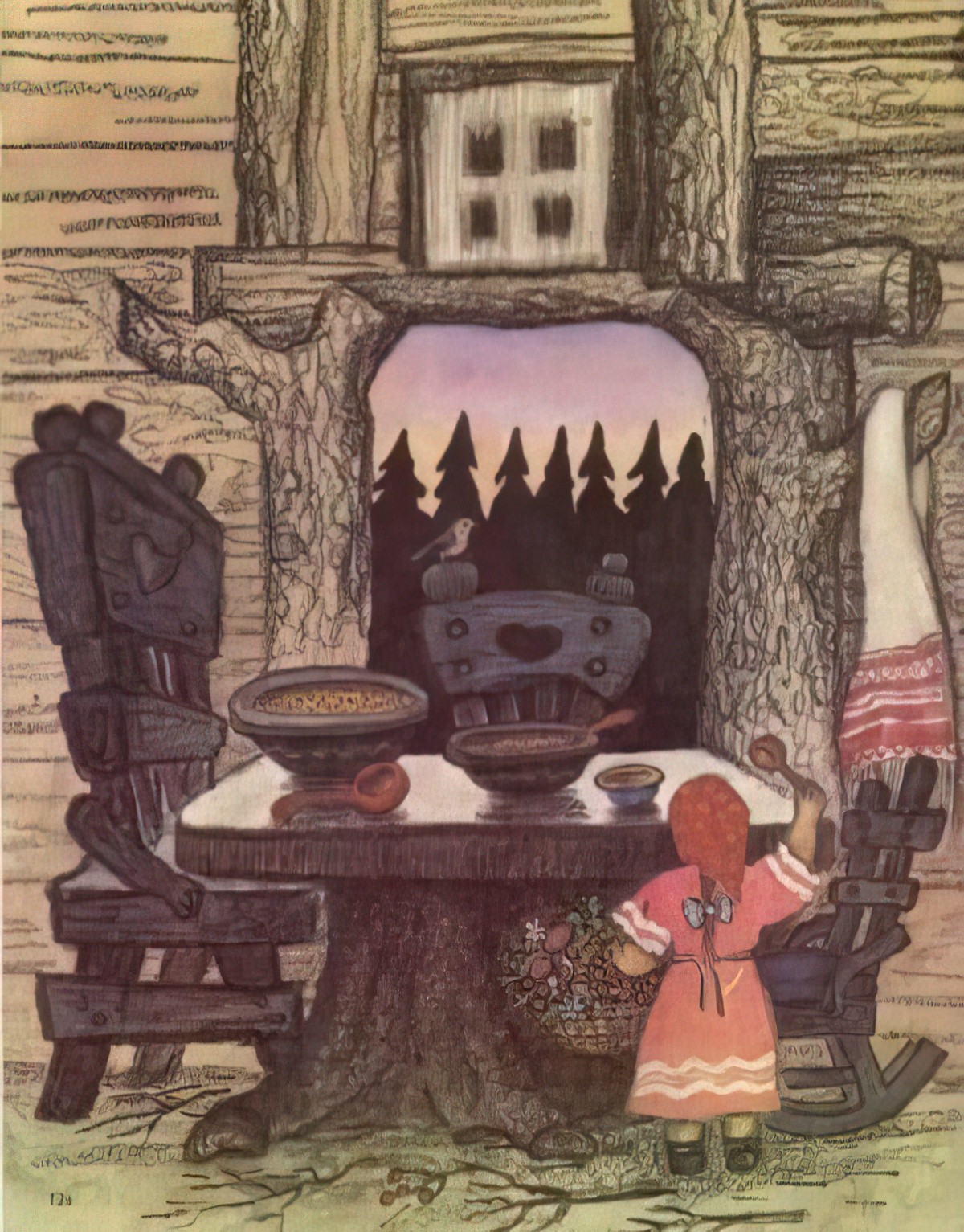
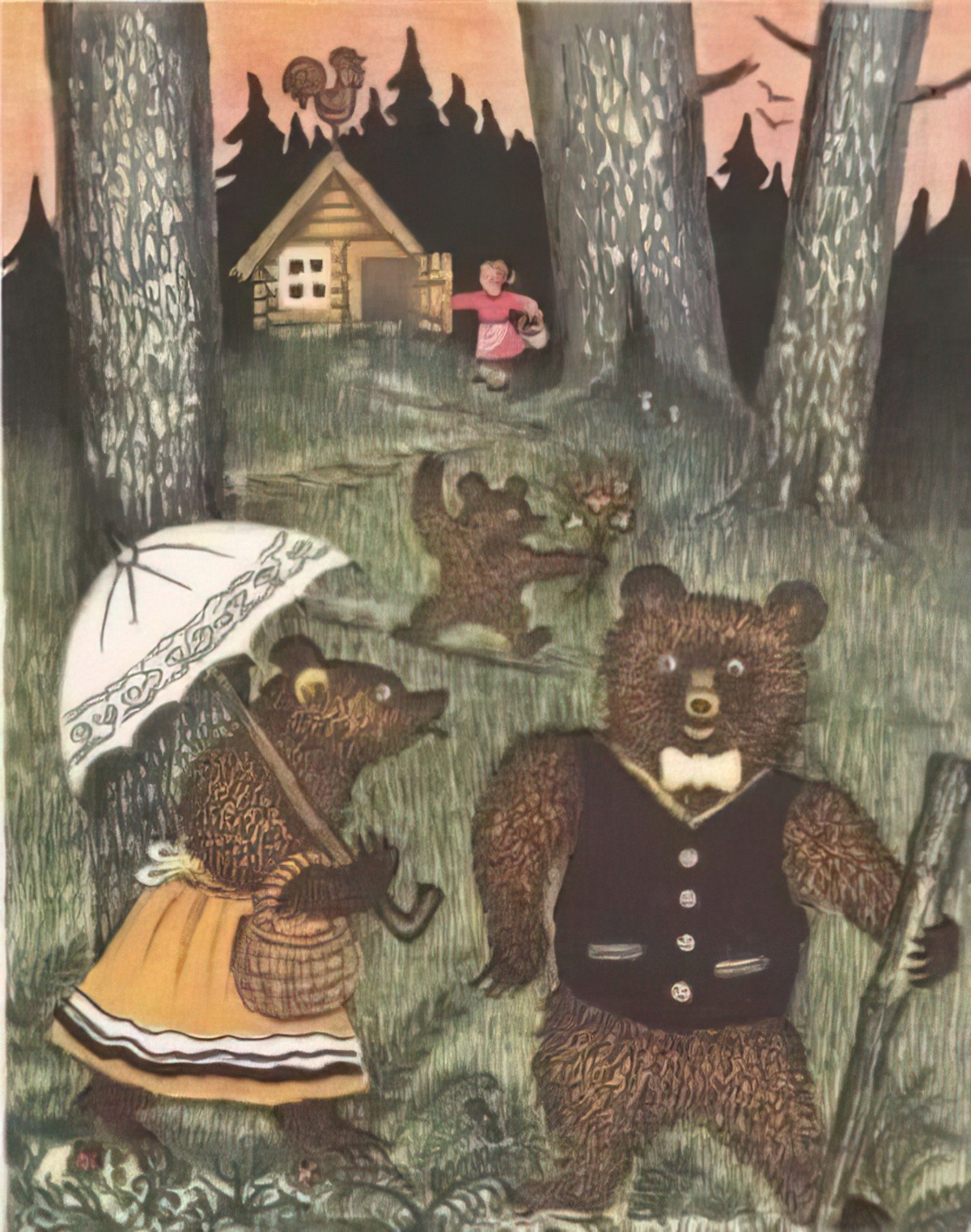
WHO IS THE MAIN CHARACTER?
This is an interesting question, because you could pick Goldilocks or you could pick ‘The Three Bears’, with focus on the Baby Bear, since the target audience is going to identify with him.
I’m going to pick Goldilocks. The human girl is slightly closer to the human child reader, and we’re with Goldilocks when she enters the bears’ house in the woods, which means we’re exploring a new environment along with her. You could also argue that Baby Bear is just as convincing as ‘the main character’, but if in doubt, ask the question ‘Who changes the most?’ I’d wager Goldilocks gets the biggest fright and learns the biggest lesson.
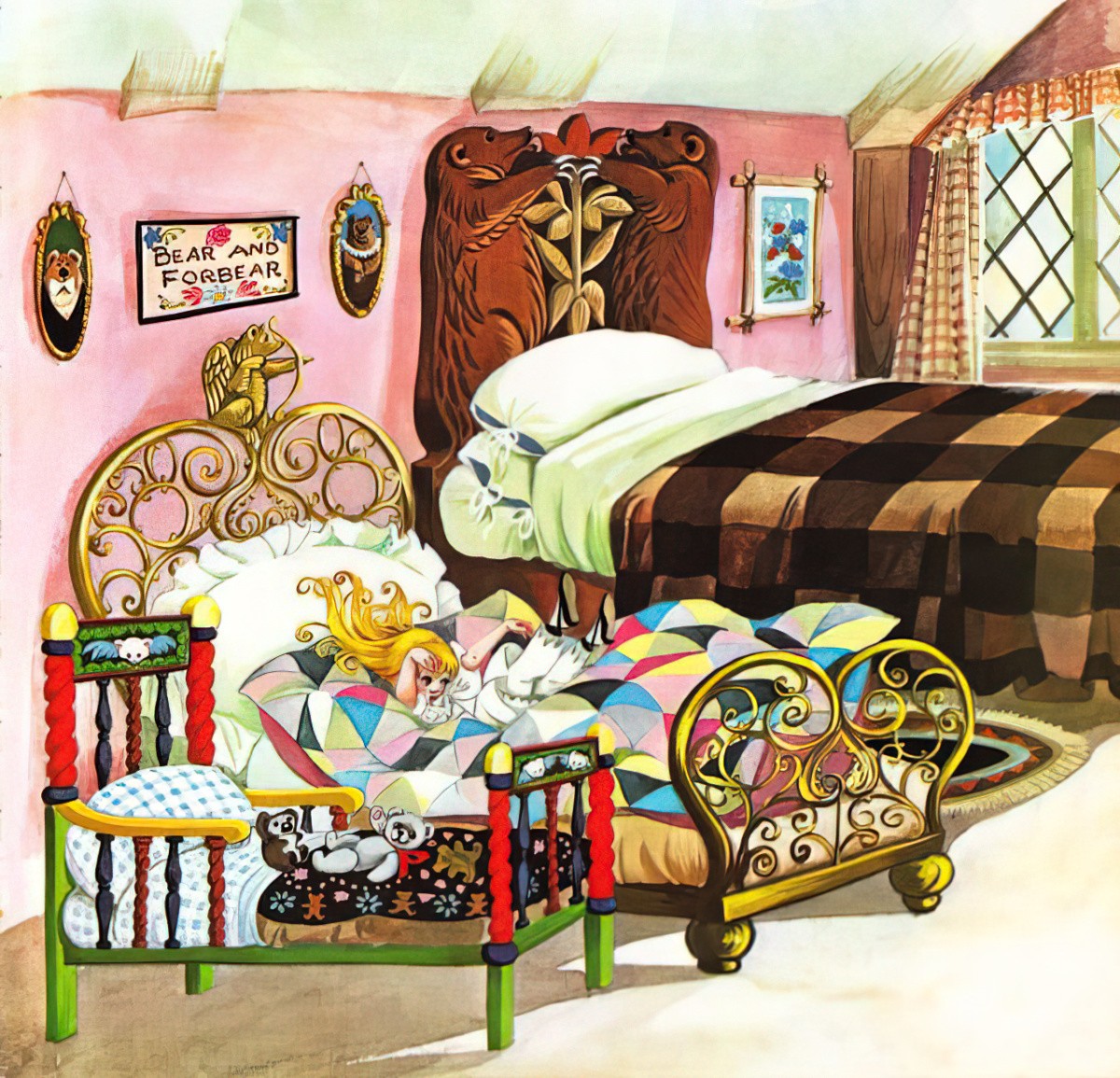
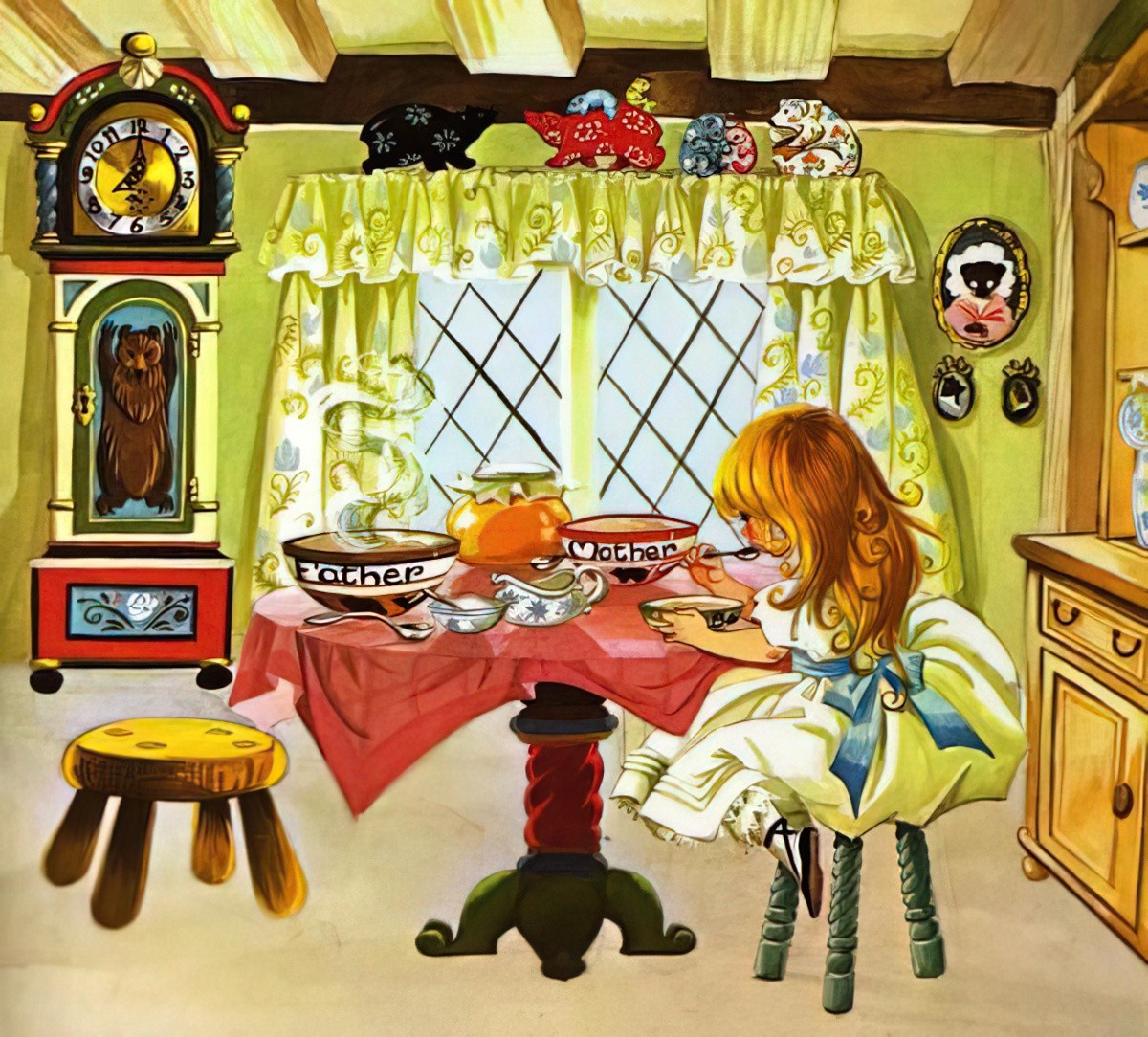
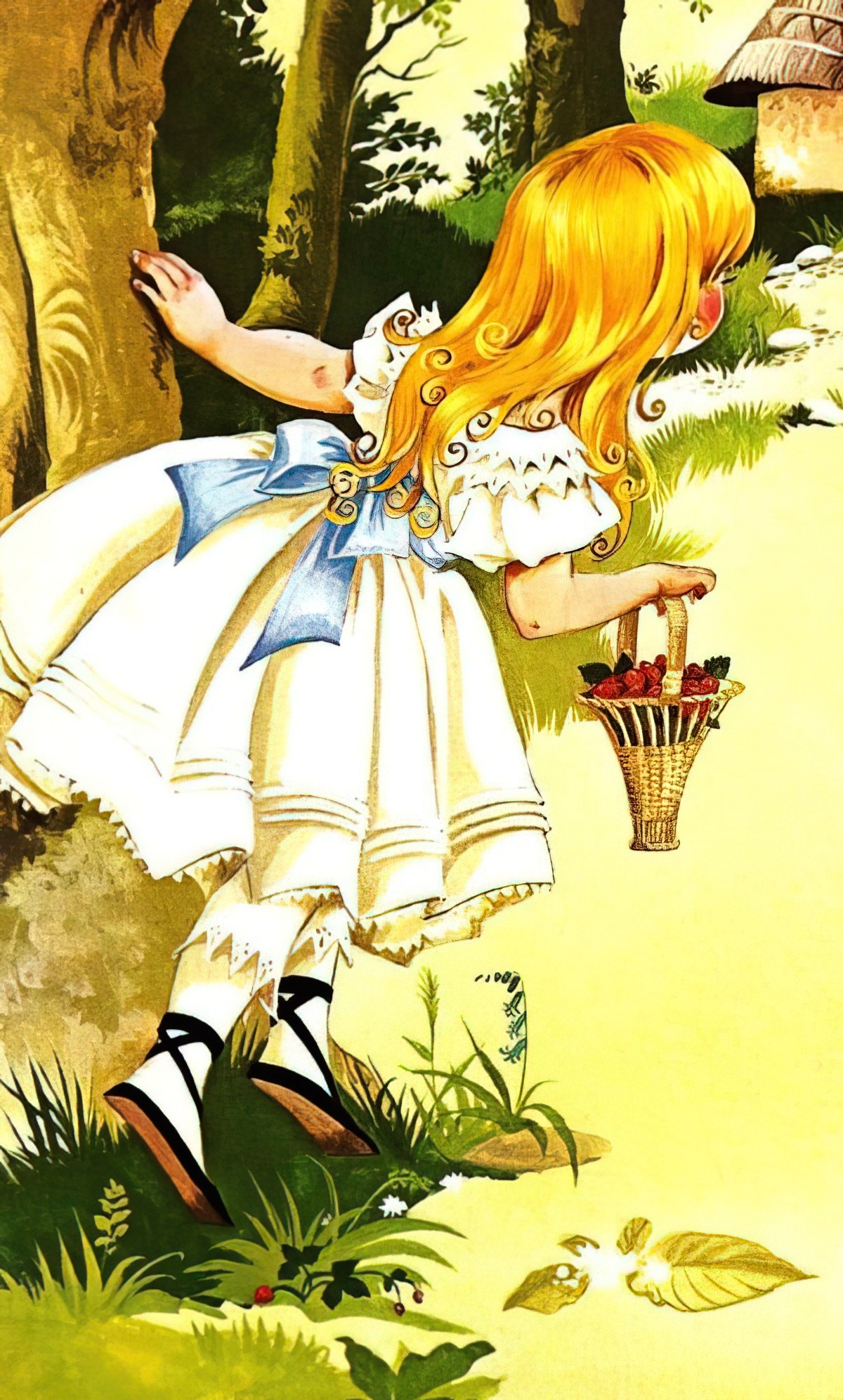
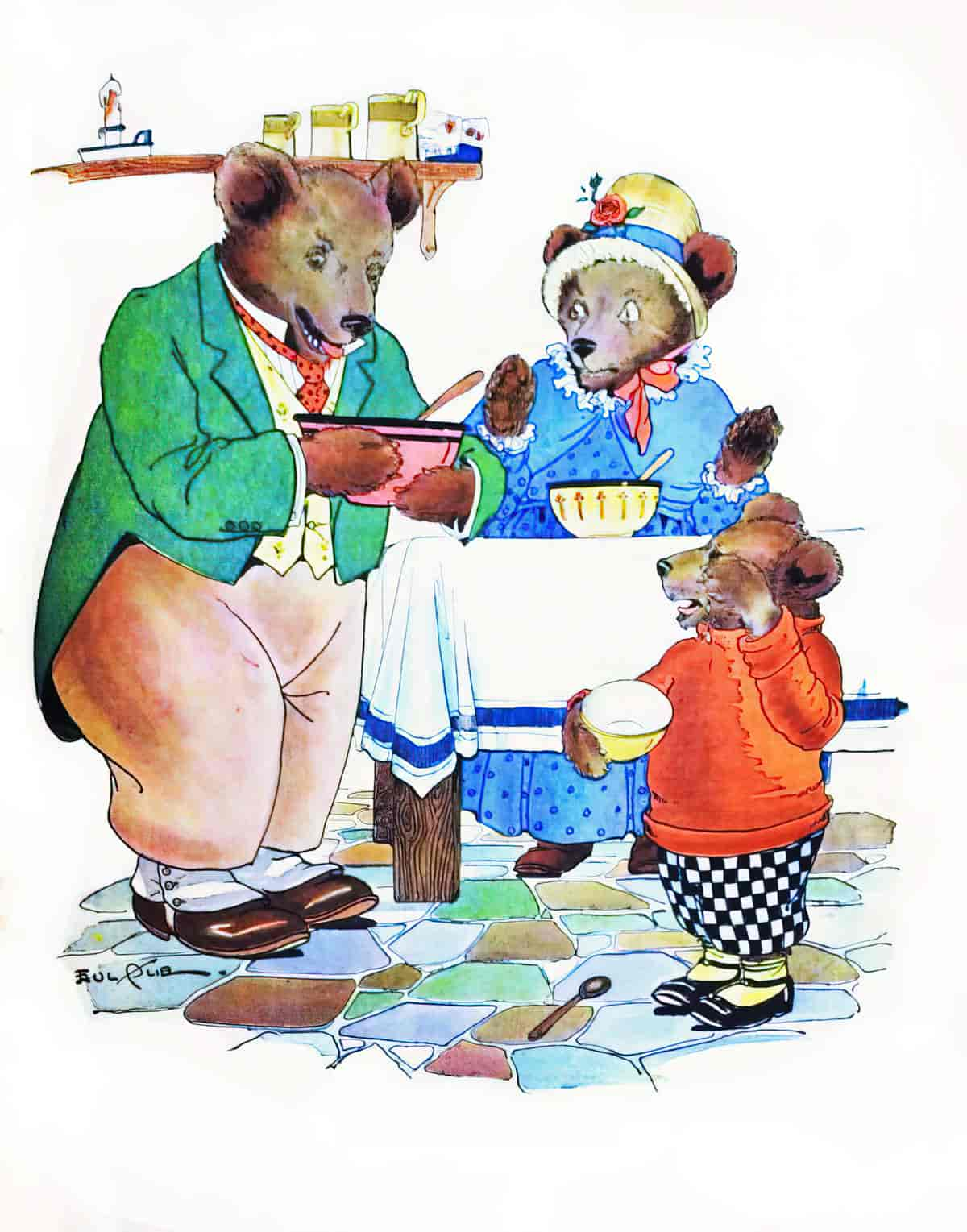
What is wrong with Goldilocks?
Oh! I just realized! You know why this struck such a chord with me? No, of course you don’t. Well, I’ll tell you: I’ve been rearranging all of our fairy tale picture books, and so I’ve been thinking a lot about various stories and whatnot, but especially about how Goldilocks is SUCH A JERK. I mean, she breaks into someone’s house, eats their food and breaks their stuff, and somehow we’re supposed to care about/root for her? NO, THANK YOU. Anyway, I love that This is Not My Hat is kind of the anti-Goldilocks.
Bookshelves Of Doom
I’m not so hard on Goldilocks, because I decode her as about five or six. She probably shouldn’t have been left to wander into the woods in the first place. In most versions from my childhood, she is illustrated as a well-dressed, upper-class little girl with the Sunday frock and the ribbons. If I was illustrating her, I would dress her in a ragged tunic and bare feet. Because a well-dressed little girl wouldn’t have been afforded that amount of freedom.
On the other hand, this is the escapist longing of that well-dressed, upper-class little girl, who would never be allowed into the woods. Of course.
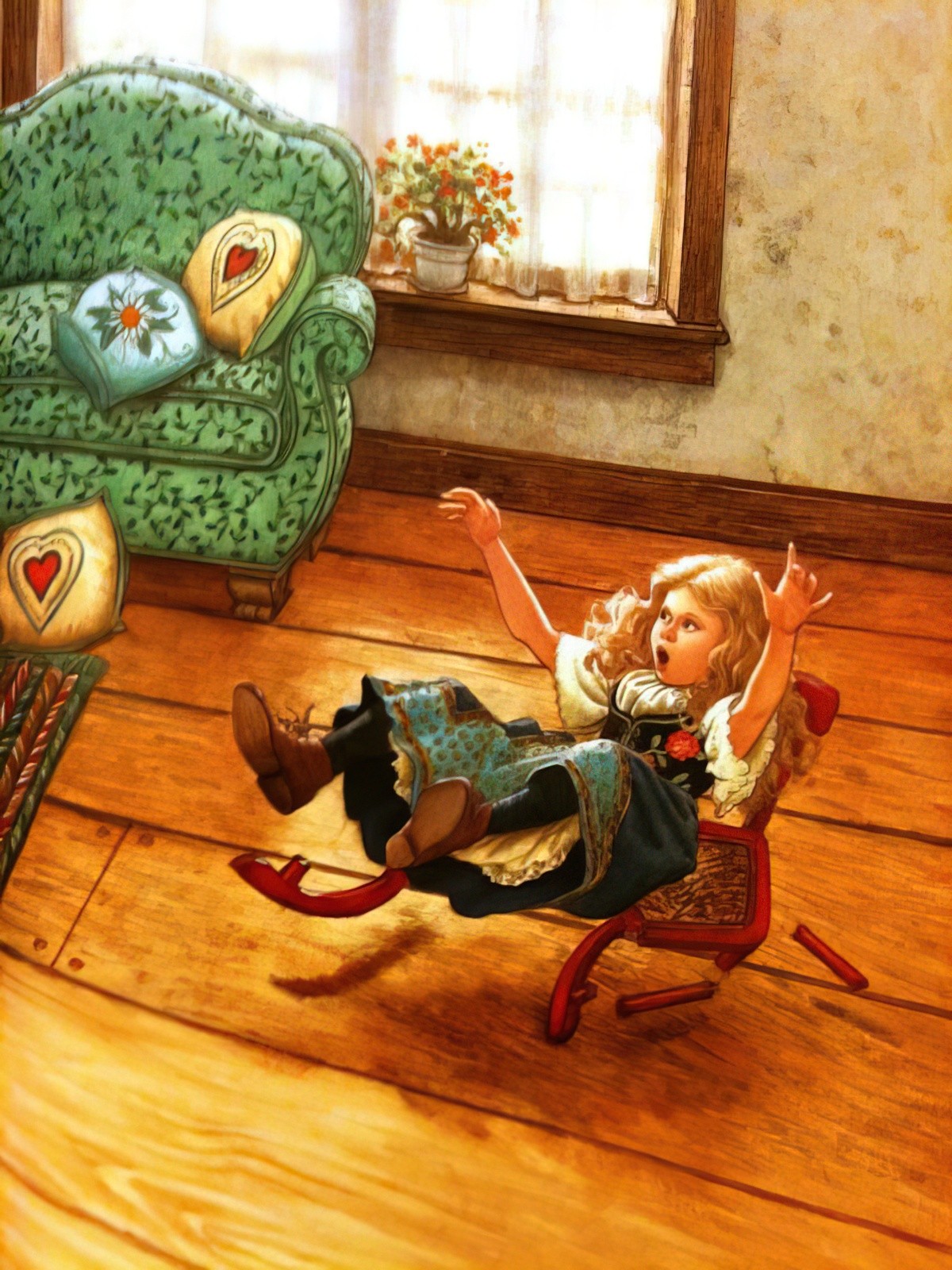
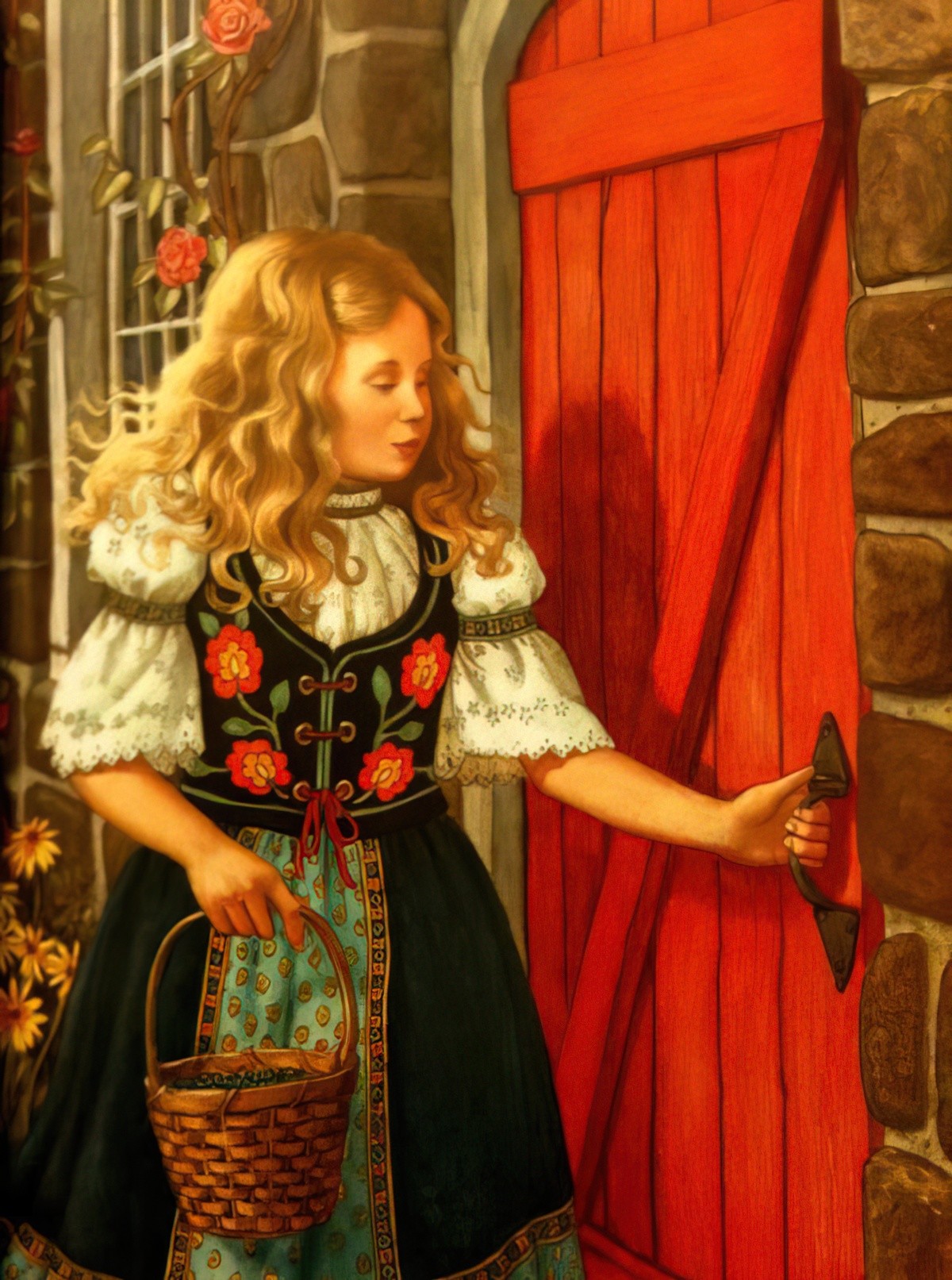
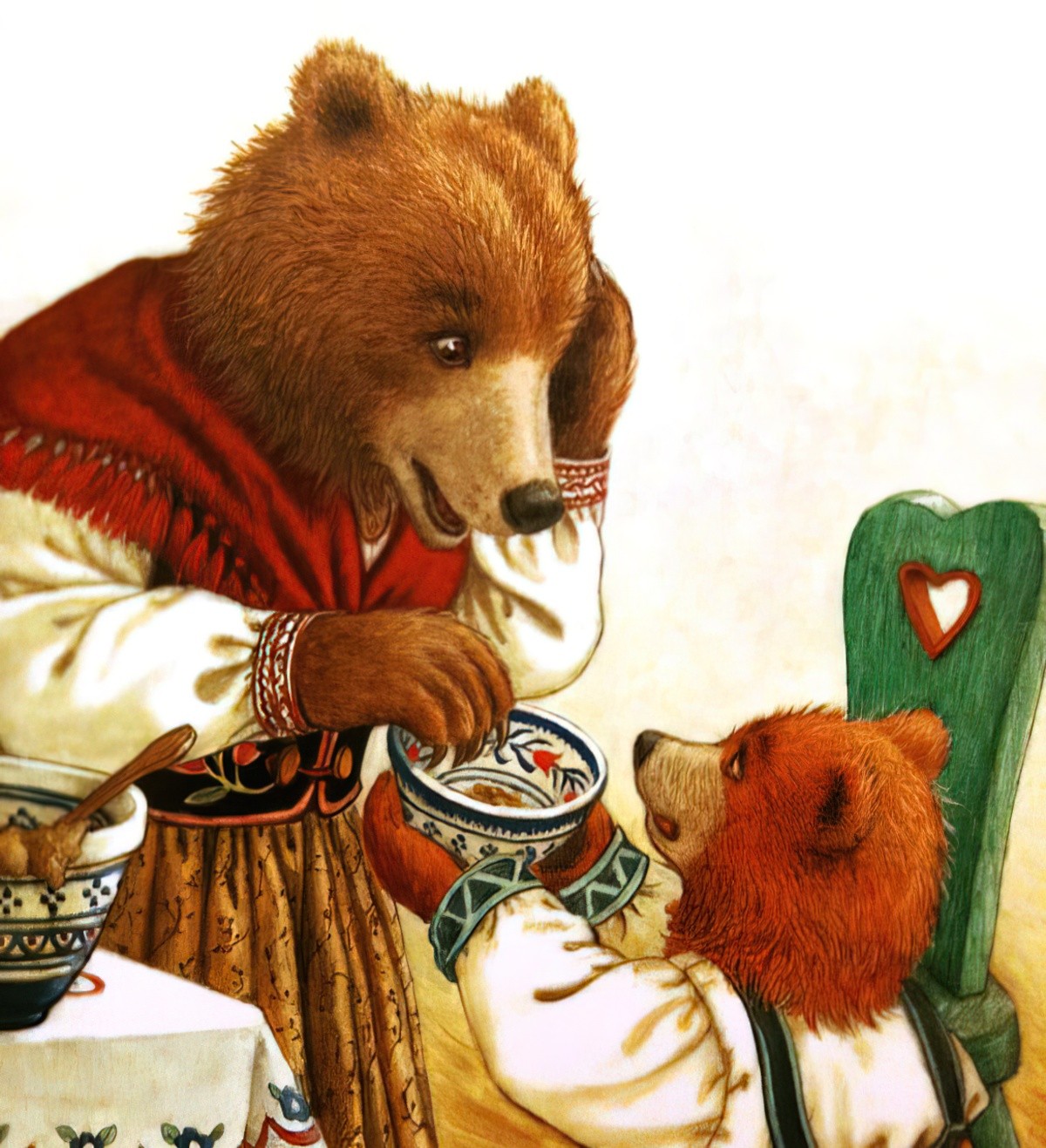
WHAT DOES GOLDILOCKS WANT?
A lot of children’s stories start out with a character who is basically bored. Goldilocks seems driven by pure curiosity. She’s not a thief, she’s not a starving urchin who has broken in with any purpose.
OPPONENT/MONSTER/BADDIE/ENEMY/FRENEMY
This information is withheld until the middle, used as a reveal when the three bears arrive back home after a stroll in the woods.
There’s a good chance the bears will be gone a while, if you know about bears.
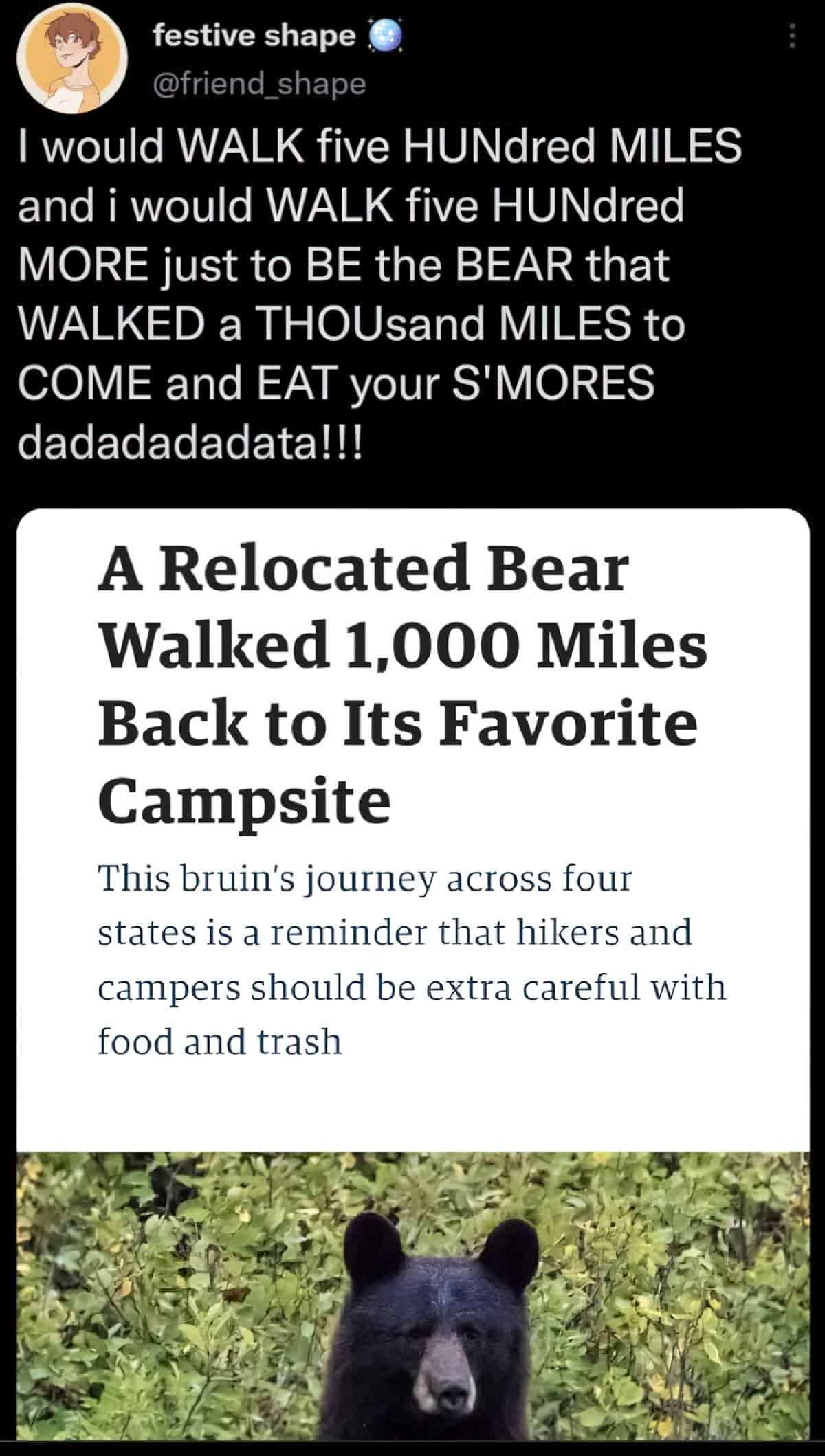
WHAT’S THE PLAN?
Goldilocks is fascinated by a cabin in the woods, goes in and tries to work out who lives there by conducting small experiments: testing each bowl of porridge
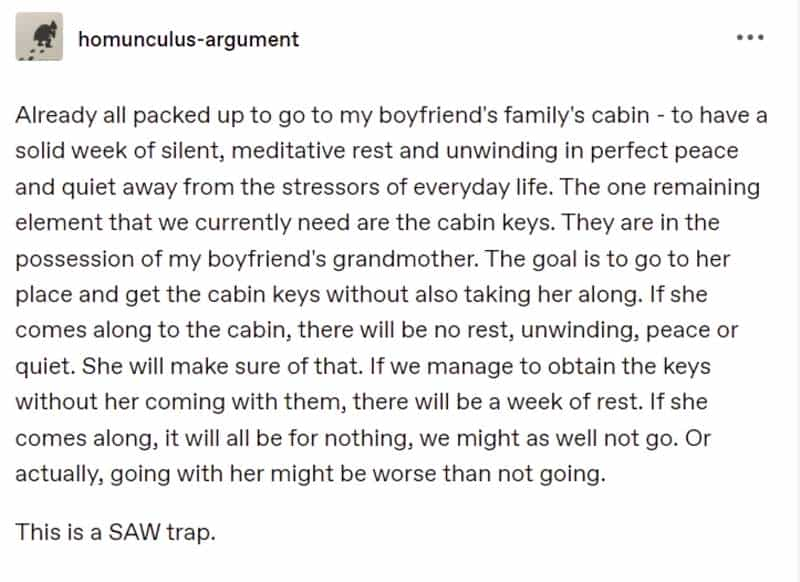
BIG STRUGGLE
The climax (Big Battle) is very obvious: The bears find Goldilocks asleep in Baby Bear’s bed. She is so startled she escapes out the window.
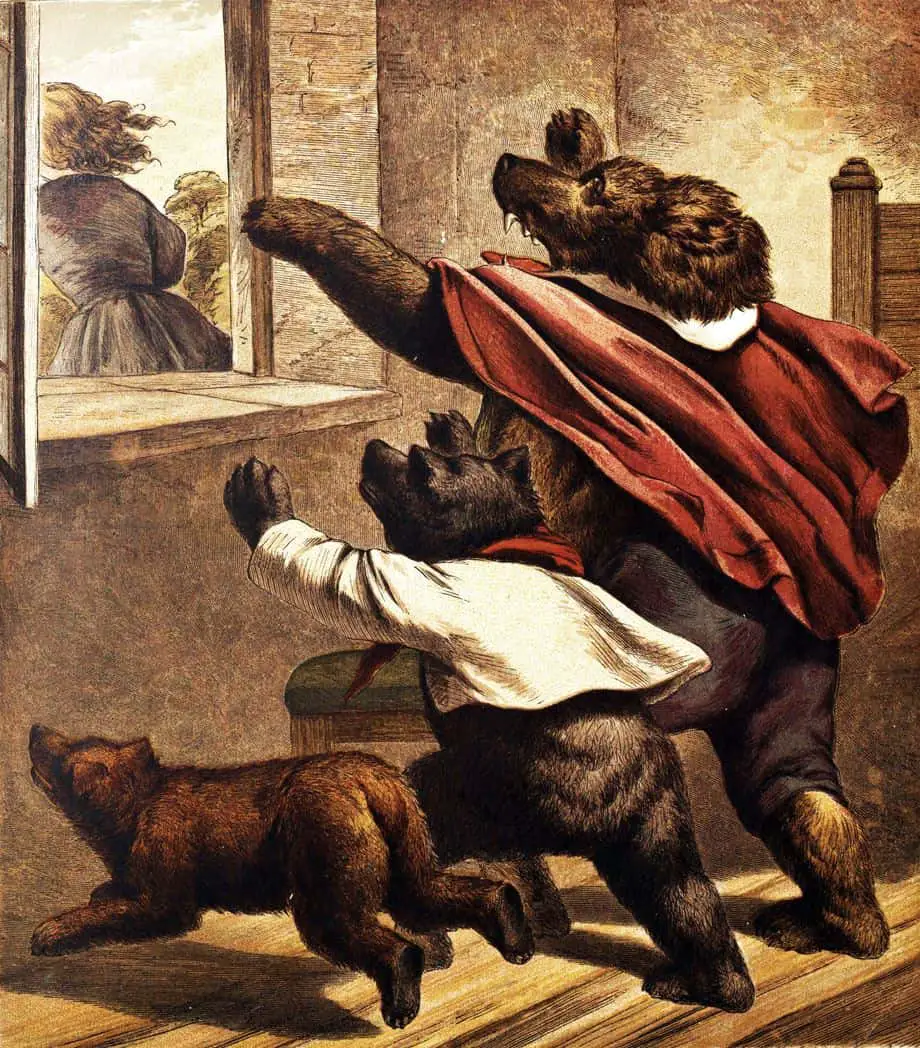
This is one of those fairy tales which is designed to be retold orally, perhaps by adults who have never been taught to read and write. When the bears find Goldilocks asleep, this provides opportunity for a jump scare — a pounce, a tickle and a great burst of laughter. Another fairy tale good for this purpose is Red Riding Hood, in which the wolf eats the girl.
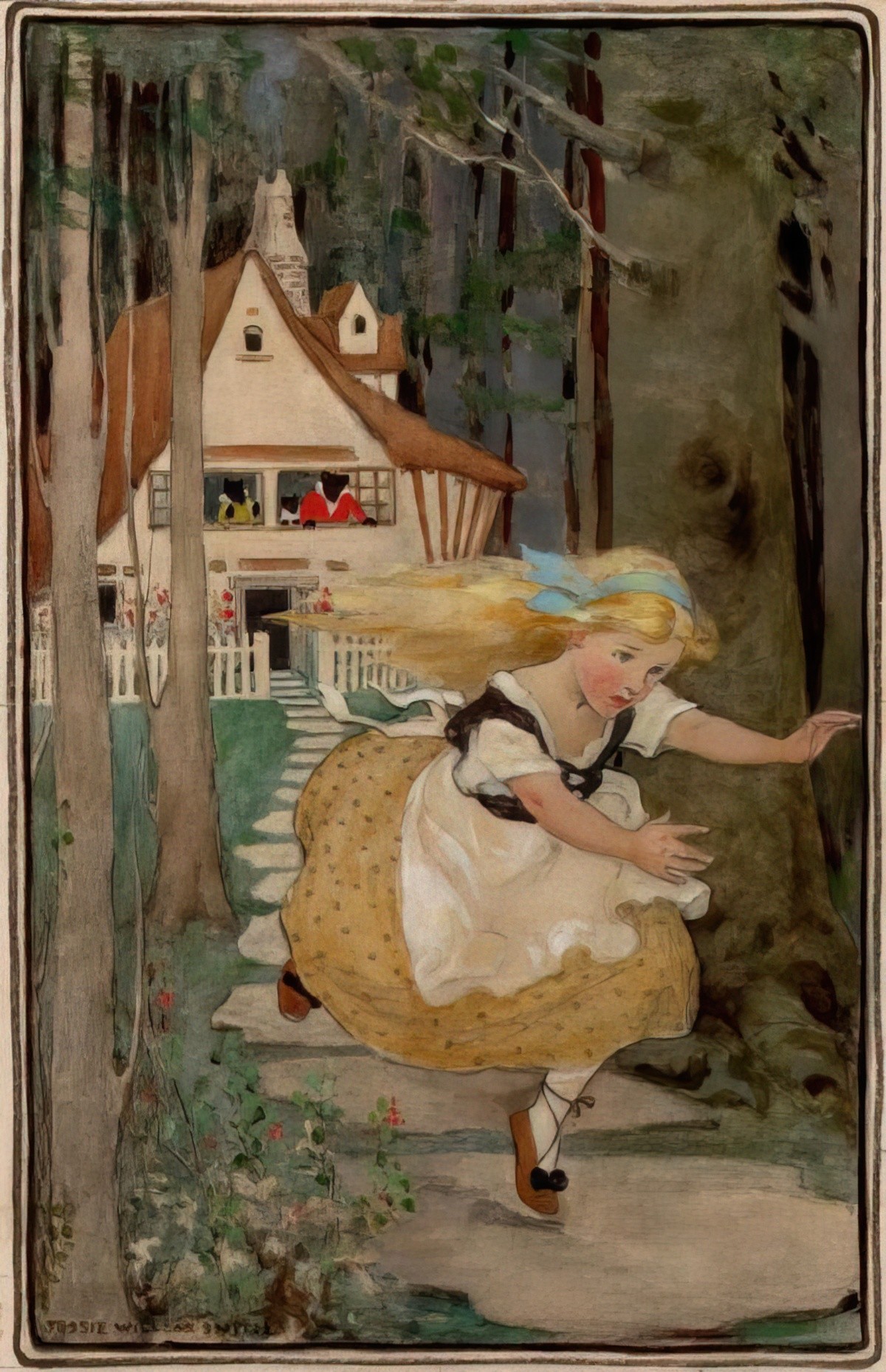
WHAT DOES THE CHARACTER LEARN?
The rest of the story is chopped off, but the narrative still feels complete because we can extrapolate (guess) the rest.
Goldilocks learns that when you break into someone’s house you might meet with danger.
In any fairy tale, it’s not just the fictional character who learns something, but also the reader:
When [Goldilocks] samples the three chairs, porridges, and beds, Goldilocks discovers that Papa Bear’s items are not right and that Mama Bear’s don’t suit; only Baby Bear’s chair, porridge, and bed are perfect. As psychologist Bruno Bettelheim suggests, this story teaches the child two things: that there are roles in the family and just which one is theirs. (It teaches this lesson, we might add, by means of bears.)
Jerry Griswold
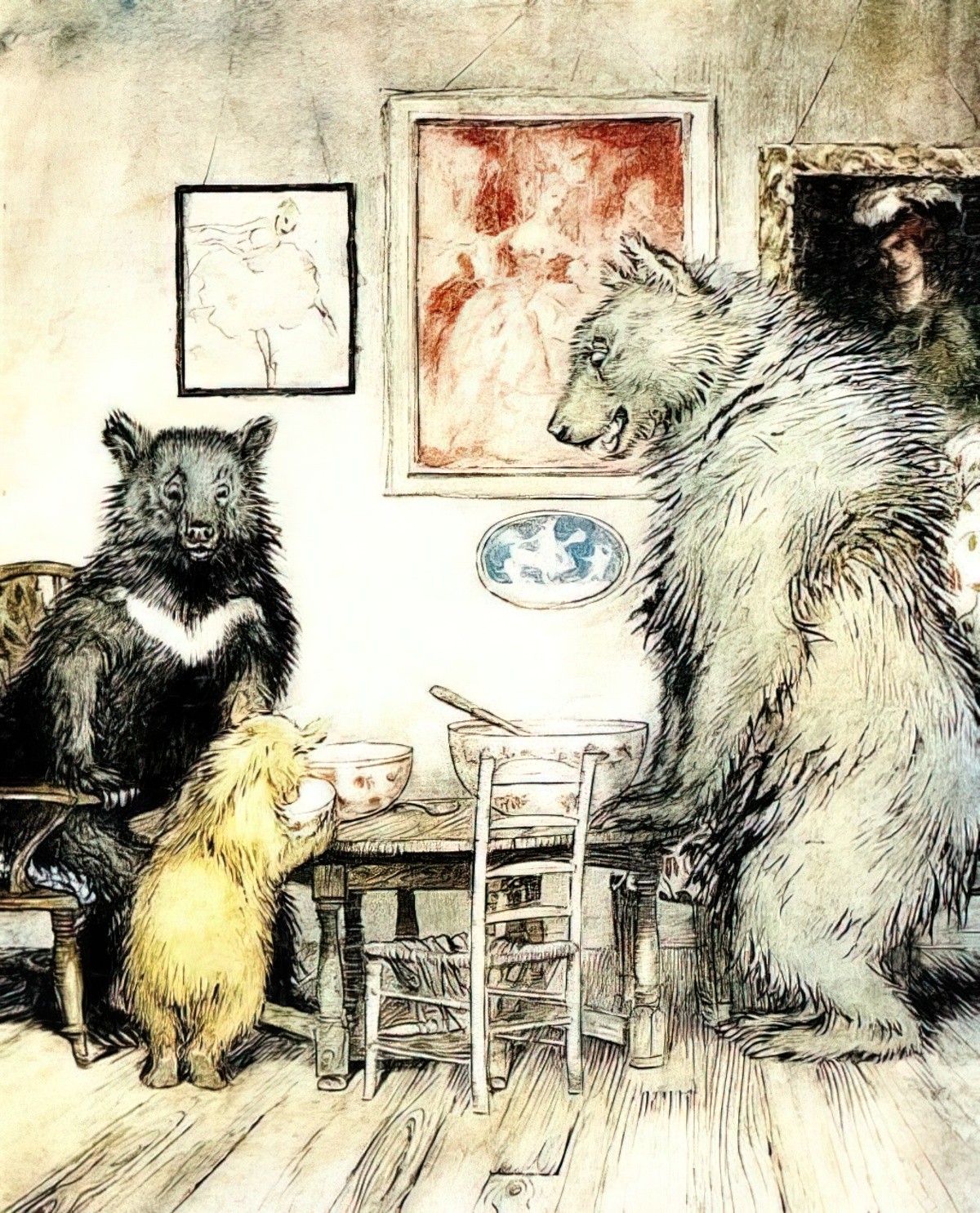
HOW WILL LIFE BE DIFFERENT FROM NOW ON?
I’m guessing those bears were left in peace, at least by Goldilocks. Someone needs to write a story about how Goldilocks became a breaker and enterer, and did three and a half years’ bird as a small-time crim.
A BRIEF HISTORY OF GOLDILOCKS AND THE THREE BEARS
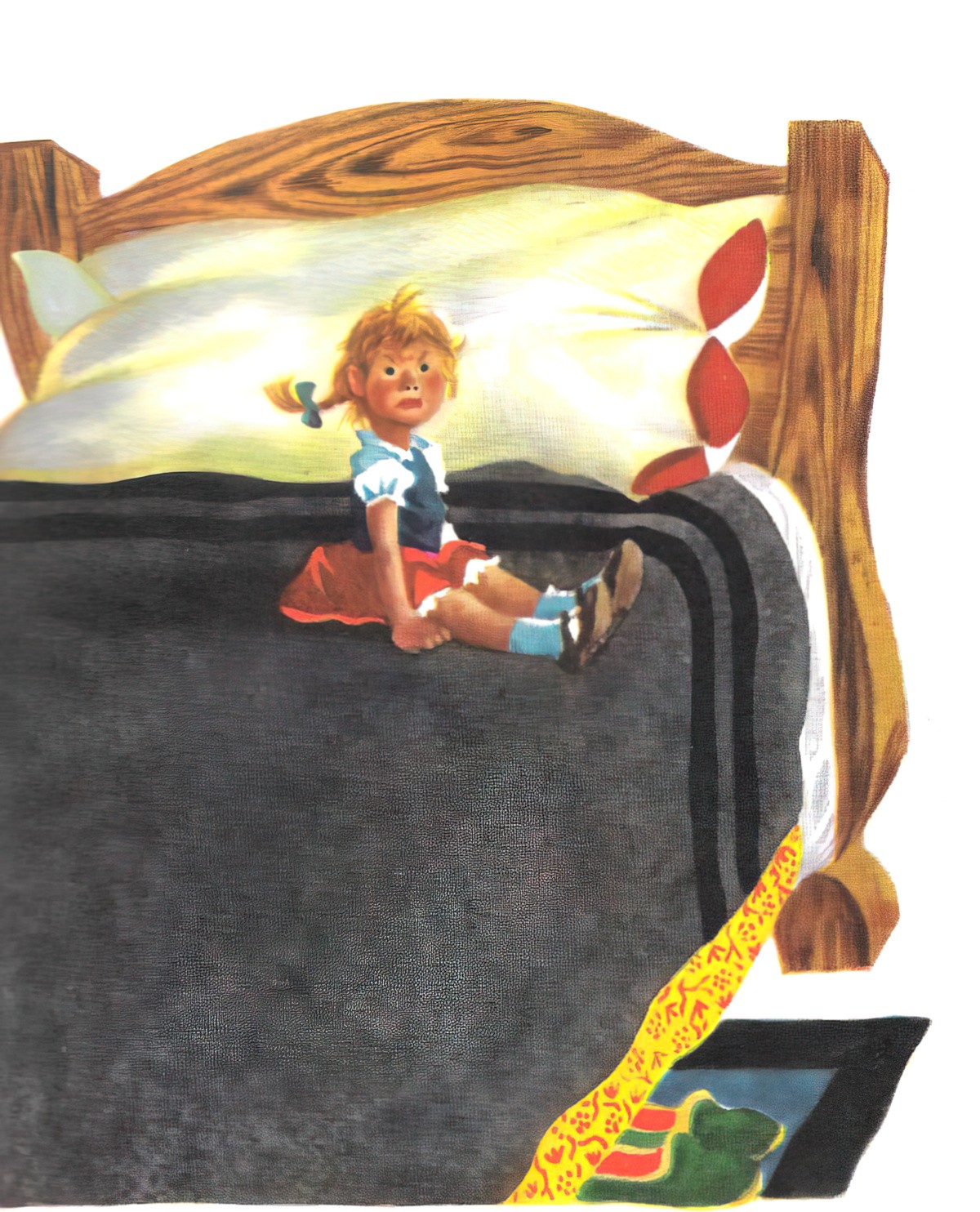
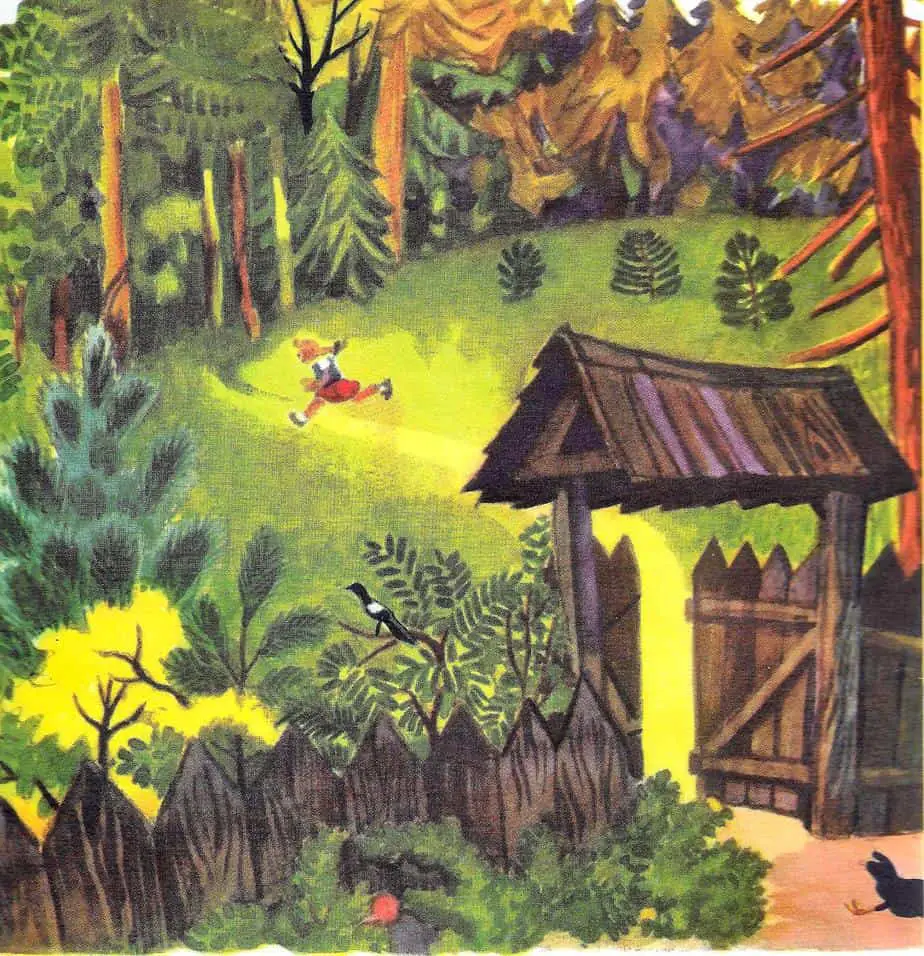
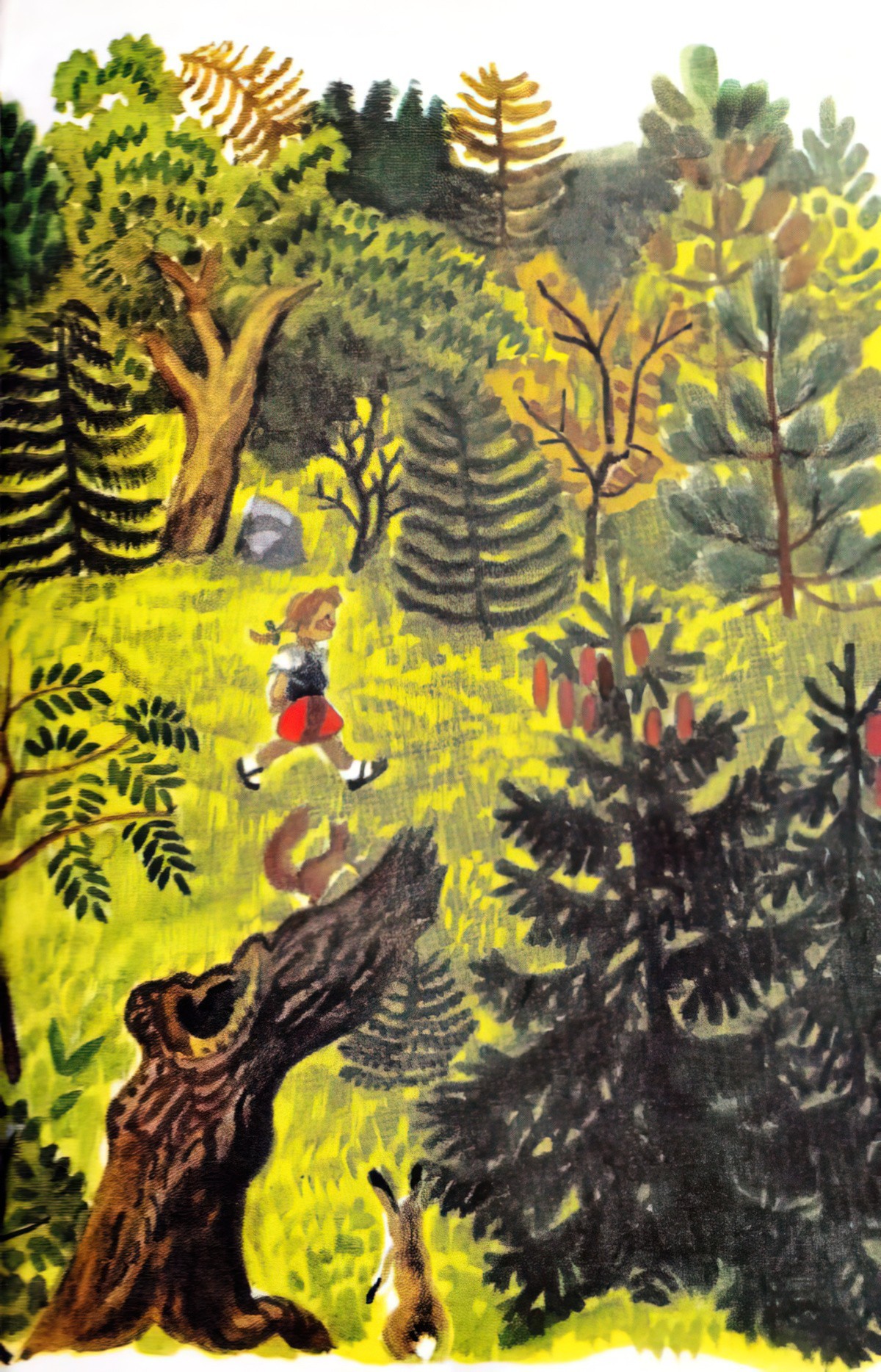
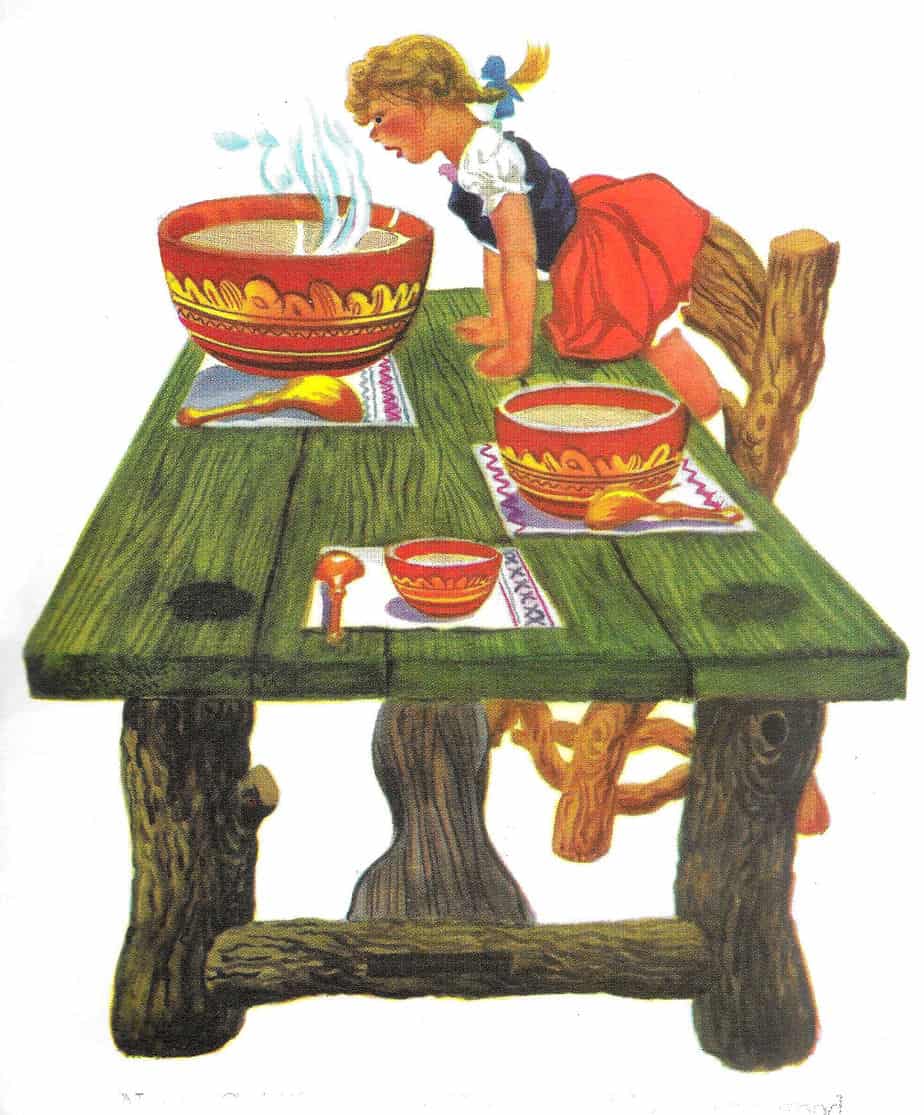
For a very brief synopsis of each of the main versions: The Goldilocks Variations from The American Reader
An early version is quite disturbing to modern sensibilities. Marina Warner writes of the story written and illustrated by Eleanor Mure:
Controlling children through bogeys, rather than lulling their terrors through merriment, inspires many famous tales in English in the nineteenth century. The earliest written version of “Goldilocks”, called “The Three Bears” in a manuscript of 1831, does not feature the little girl of today but another witchy old woman, and in much less benign spirit than the characters of nursery rhymes. At first, she stoves in the chair she sits on and lands, legs flailing, on her bottom; her pranks in this story are at first intended to be funny but turn ambiguous. For the end appals: the bears ‘drag forth the dame, half expiring with fear’, maltreat her for a witch, throwing her on the fire to burn her, and then ‘swimming ‘ her in a pond where, like a reputed witch, she floats. As if this were not enough, they then ‘chuck her aloft of St Paul’s churchyard steeple’. The teller also illustrated her manuscript, which she was giving as a present to her nephew. The three bears’ house is very large, gracious and well-appointed, and stands behind bayonet railings: the little nephew was learning about the social order. Violence in children’s literature changes form, and its targets differ—but it never disappears.
From The Beast To The Blonde, Marina Warner
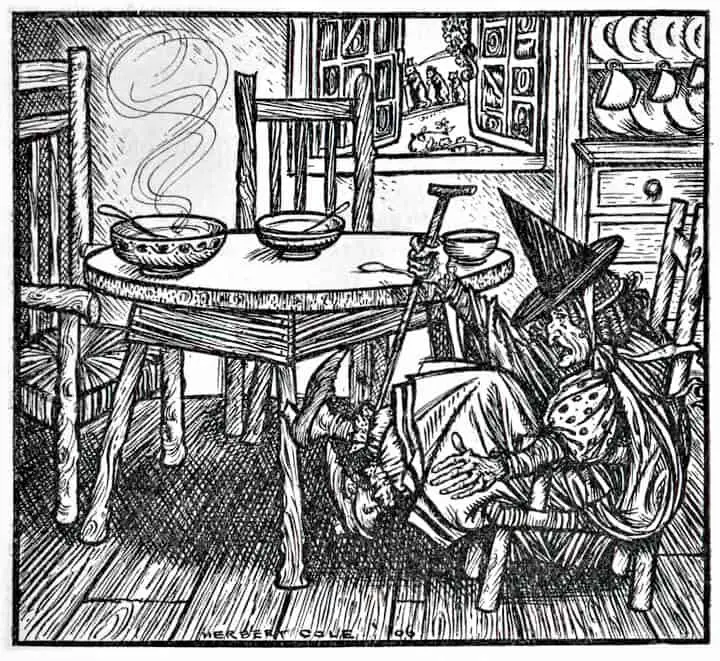
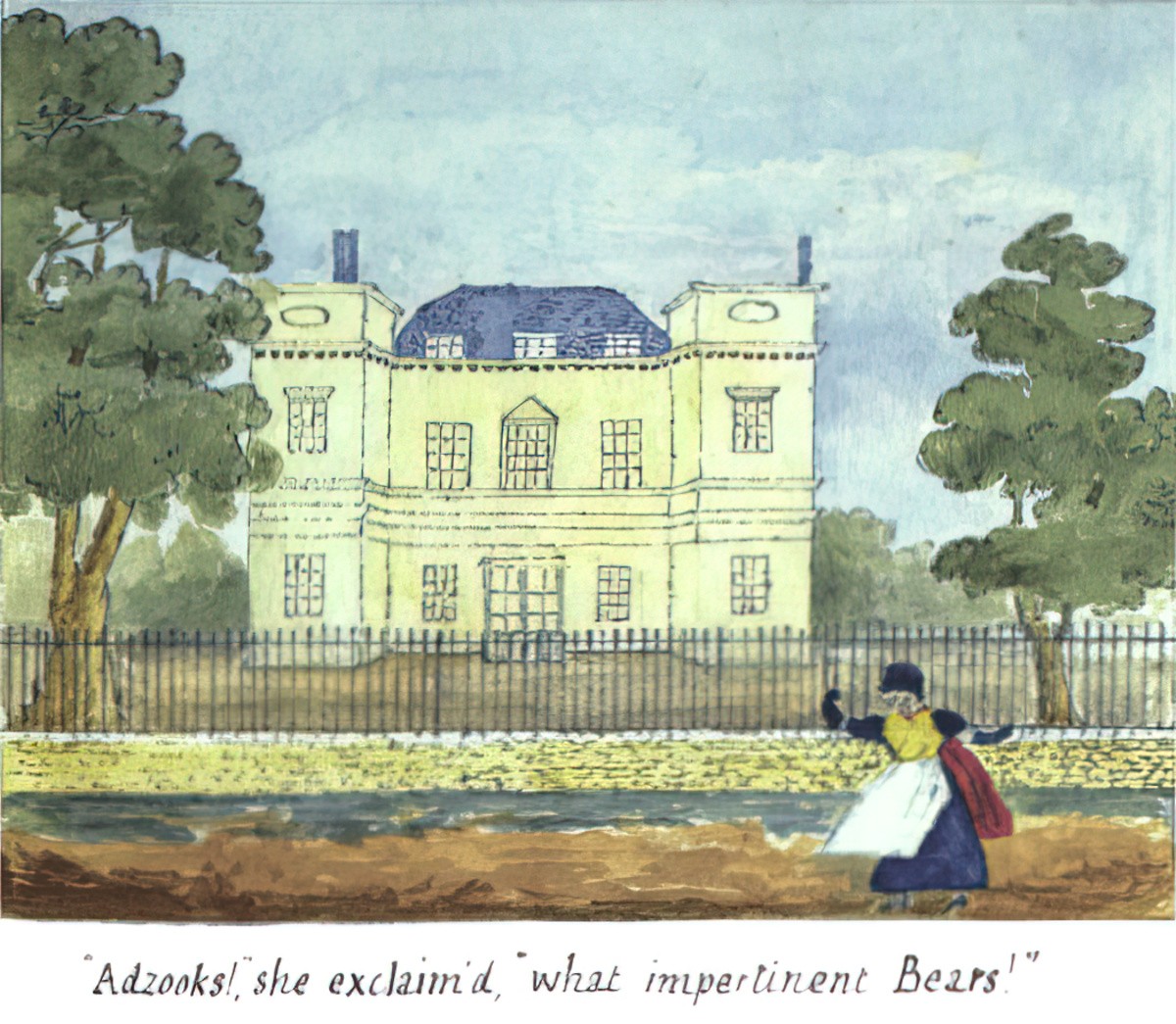
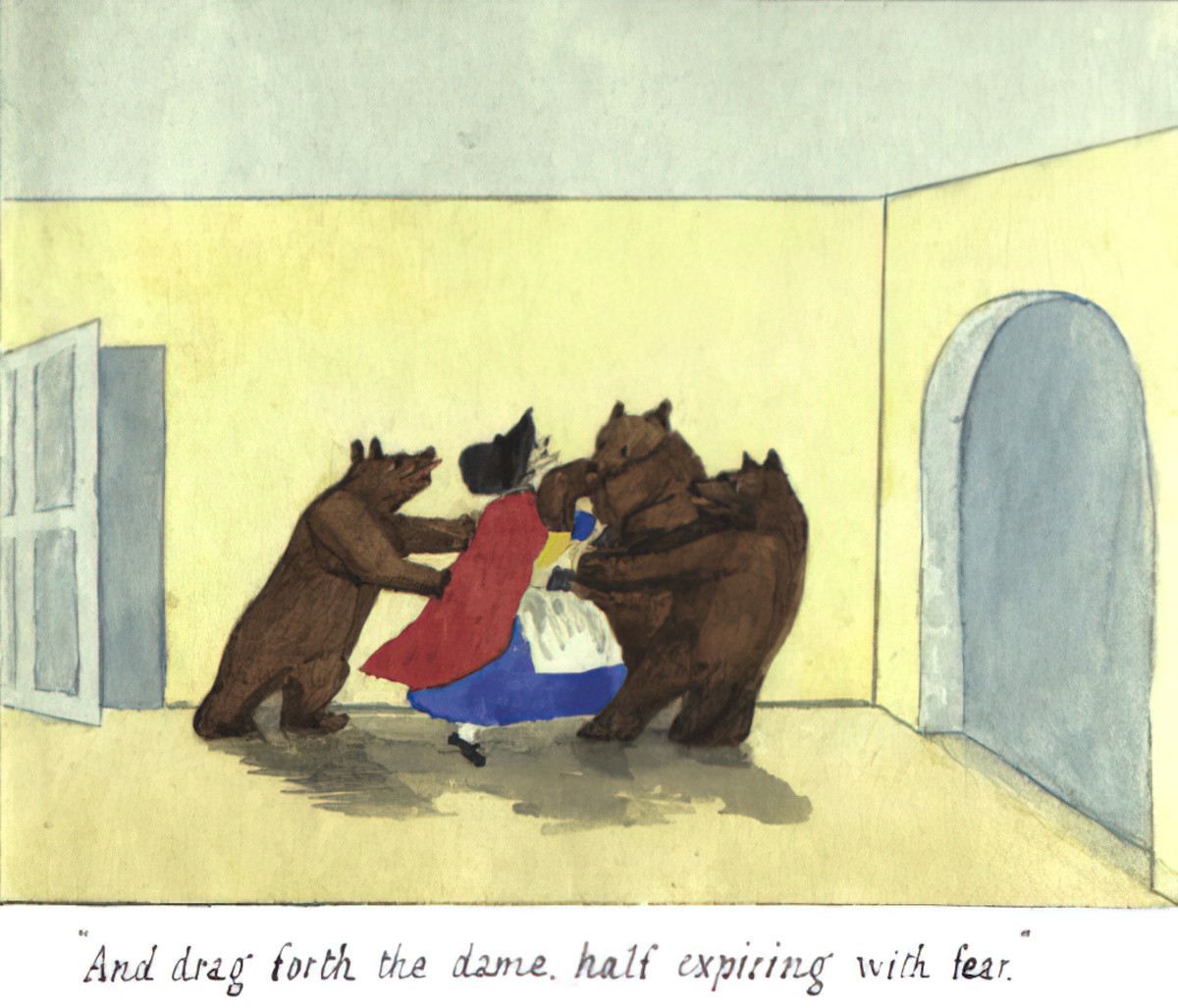
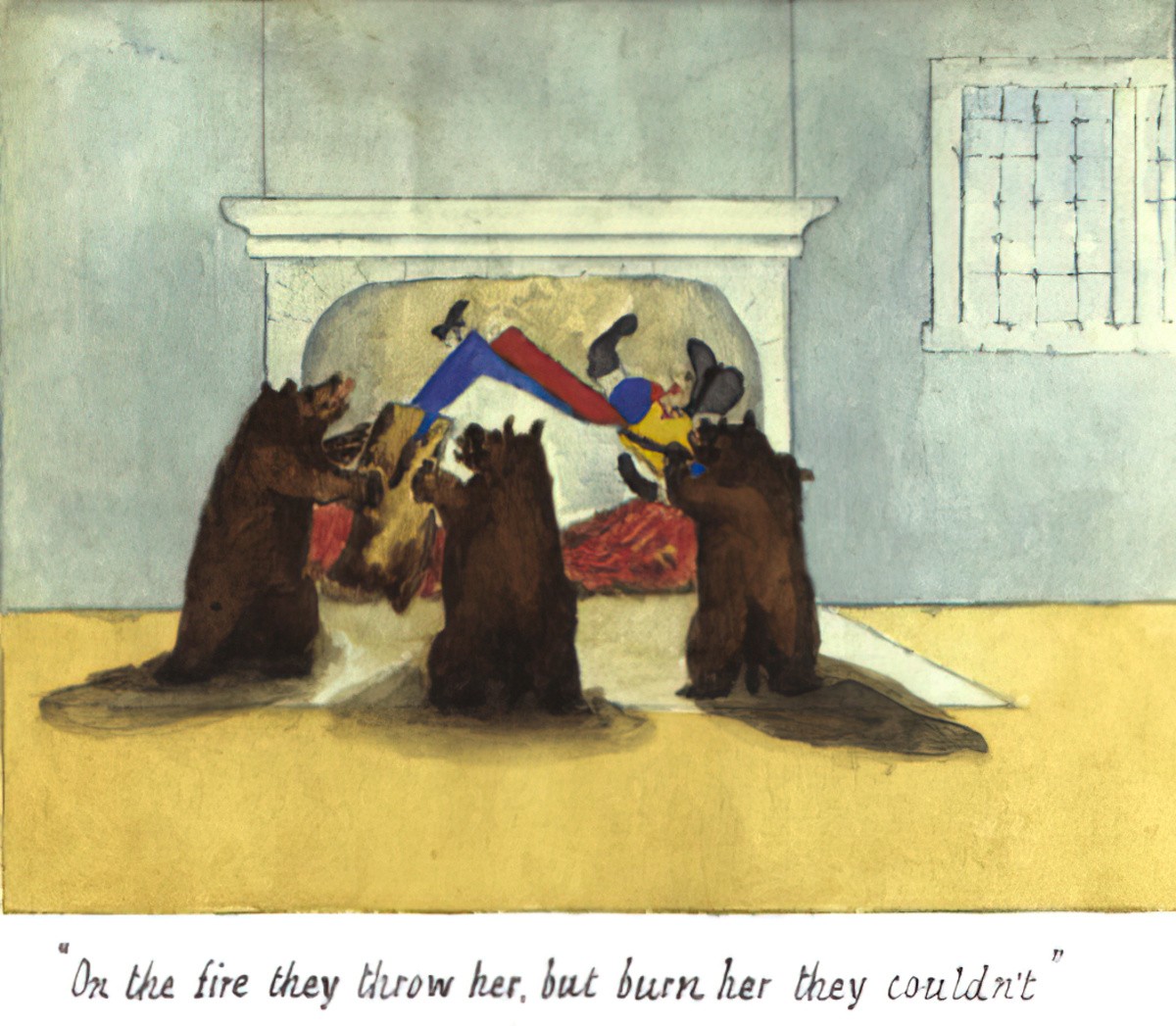
Hair
This tale has changed a lot over the years, as all fairytales have. Originally, the intruder was an old woman. Then she was aged down, then she was given blonde hair, named ‘Goldilocks’ and has been known as Goldilocks since. Sometimes it only takes one version or illustrator to lead to a big change like that. Snow White was changed permanently by Disney, who gave the dwarves the jobs of miners. Previously they weren’t miners, and they didn’t have those names.
Clothes, or No Clothes?
The Three Bears in The Golden Goose Book, 1905, are not dressed; they live in a charming house that seems to have been transported to the wood from Hampstead Garden Suburb; they are not fearsome except by their sheer size. Their animal faces have deftly indicated human expressions of surprise and censure at their discoveries and absurd parental pride in the antics of the small Bear who wails and grouses like a child or jumps and somersaults in excited fun and naughtiness. Their bear home is full of fancies with punning human words, pictures, ornaments and books turned into their bear equivalents.
Animal Land, Margaret Blount
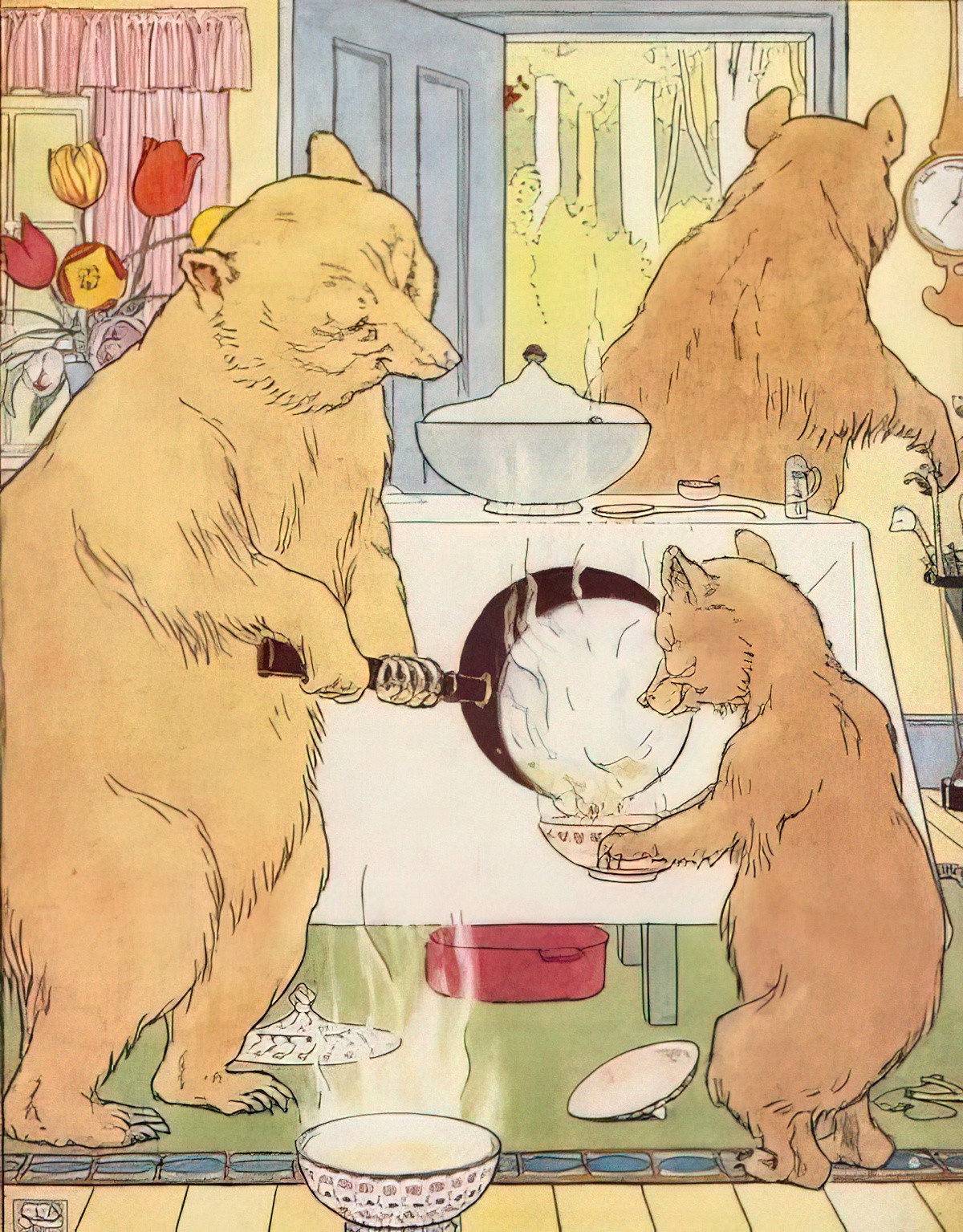
Faulty Physics In Goldilocks And The Three Bears
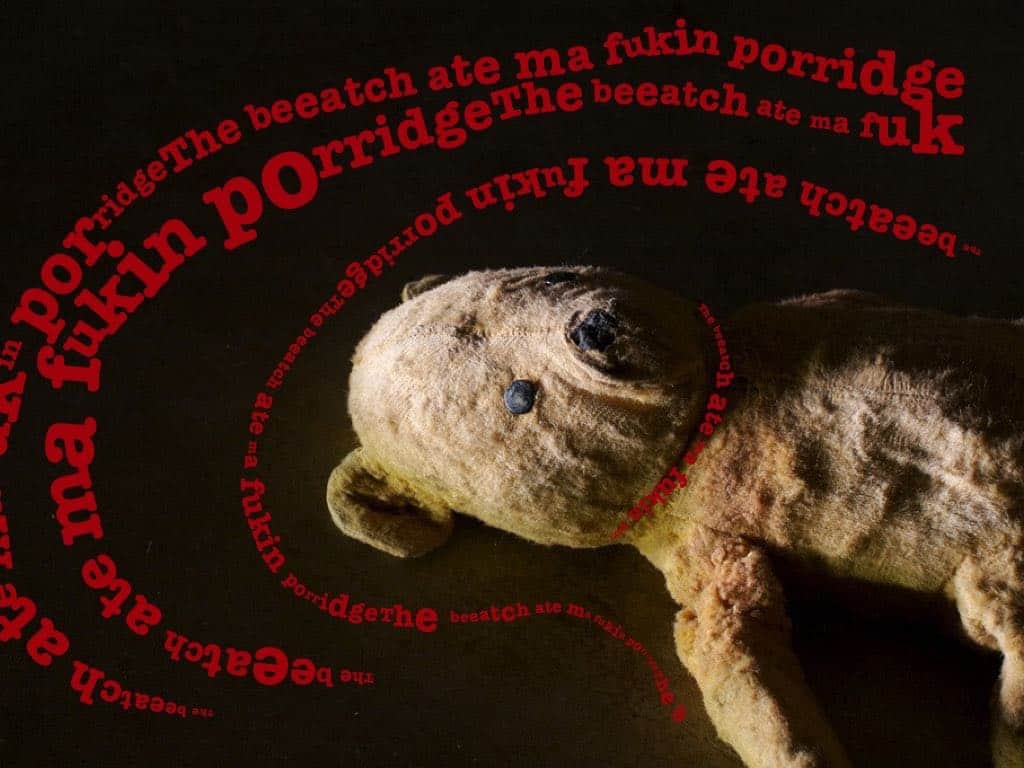
Gets me every time.
Fair enough that the largest bowl of porridge is too hot. Fair enough that the mother’s medium sized bowl is too cold. But how can the baby bear’s even smaller bowl of porridge be just right? If it’s the smallest mass of the lot, it holds its heat for the shortest time. It should be even colder. This just doesn’t make sense.
(Unless, of course, three separate batches of porridge were made from scratch, to cater to everyone’s preferred consistency. I do know families who prepare meals like this.)
There’s a feminist issue in here. I’m sure of it. I understand the three bears went for a walk to let their porridge cool down. Whose idea was that? I presume from the state in which Goldilocks found the porridge, that it was only the father bear’s porridge which had been too hot; I imagine also that the mother bear went along with him, even though her own porridge was probably just right and she wanted to eat it then and there. She should’ve let him go out for his own bloody walk. Then none of this sorry saga would’ve happened.
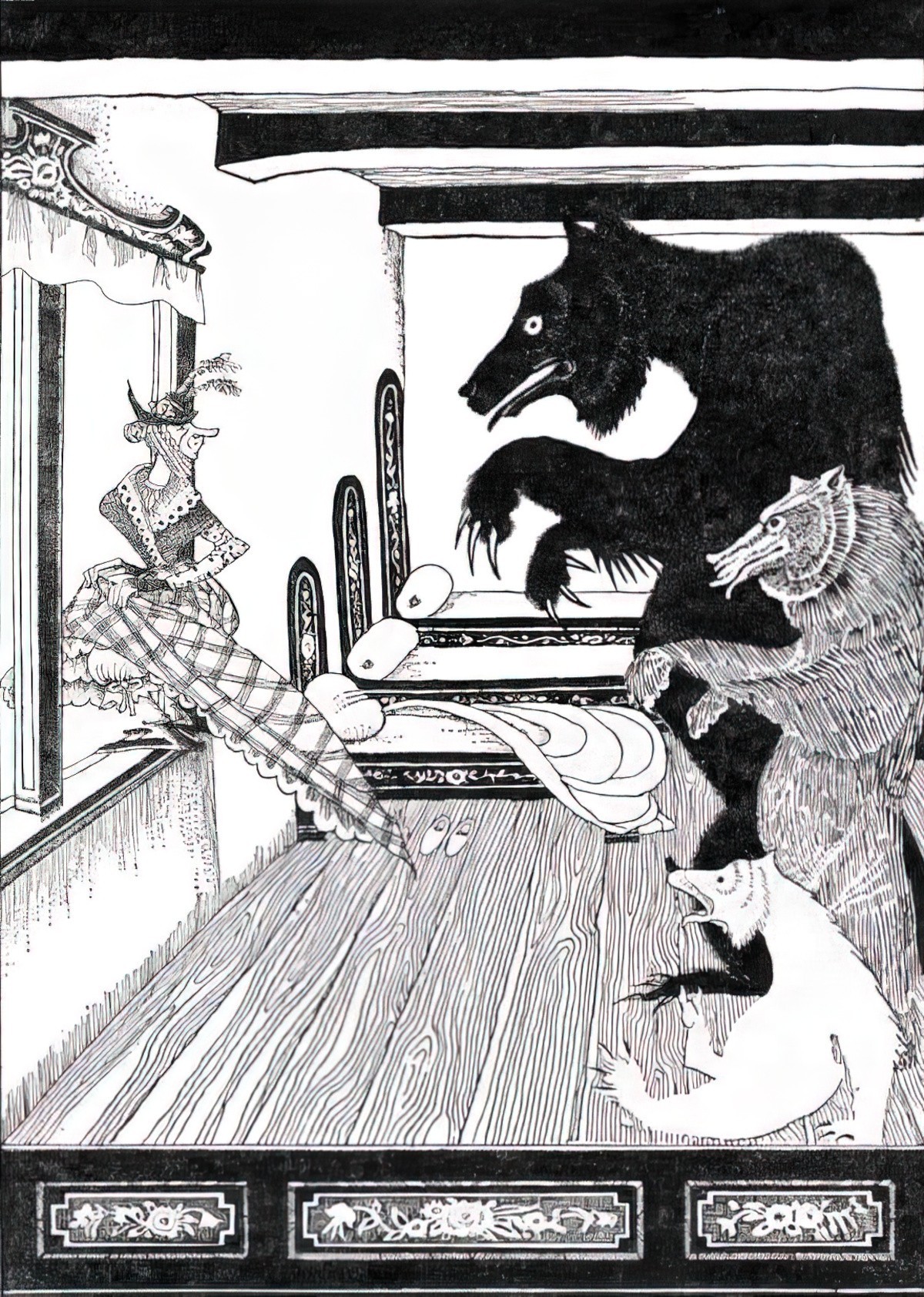
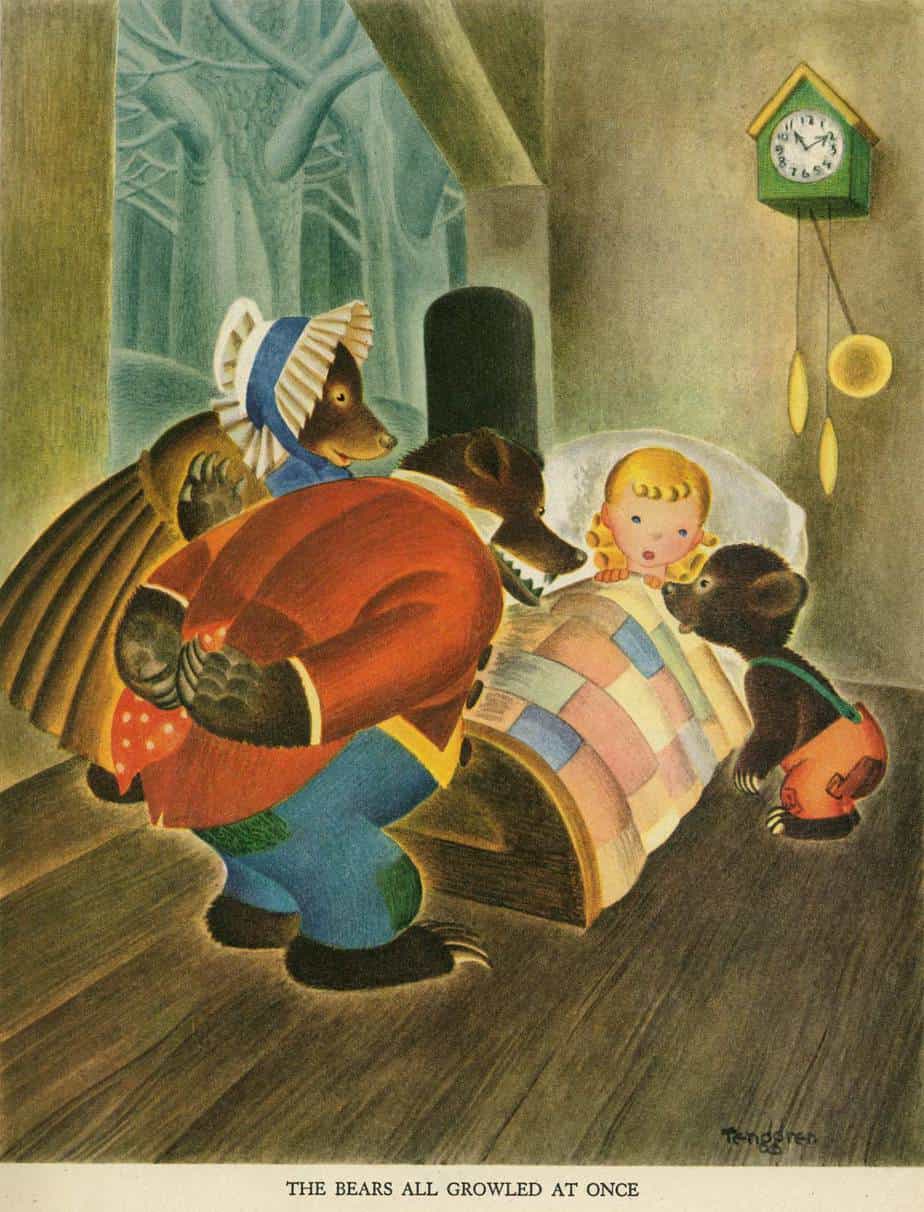
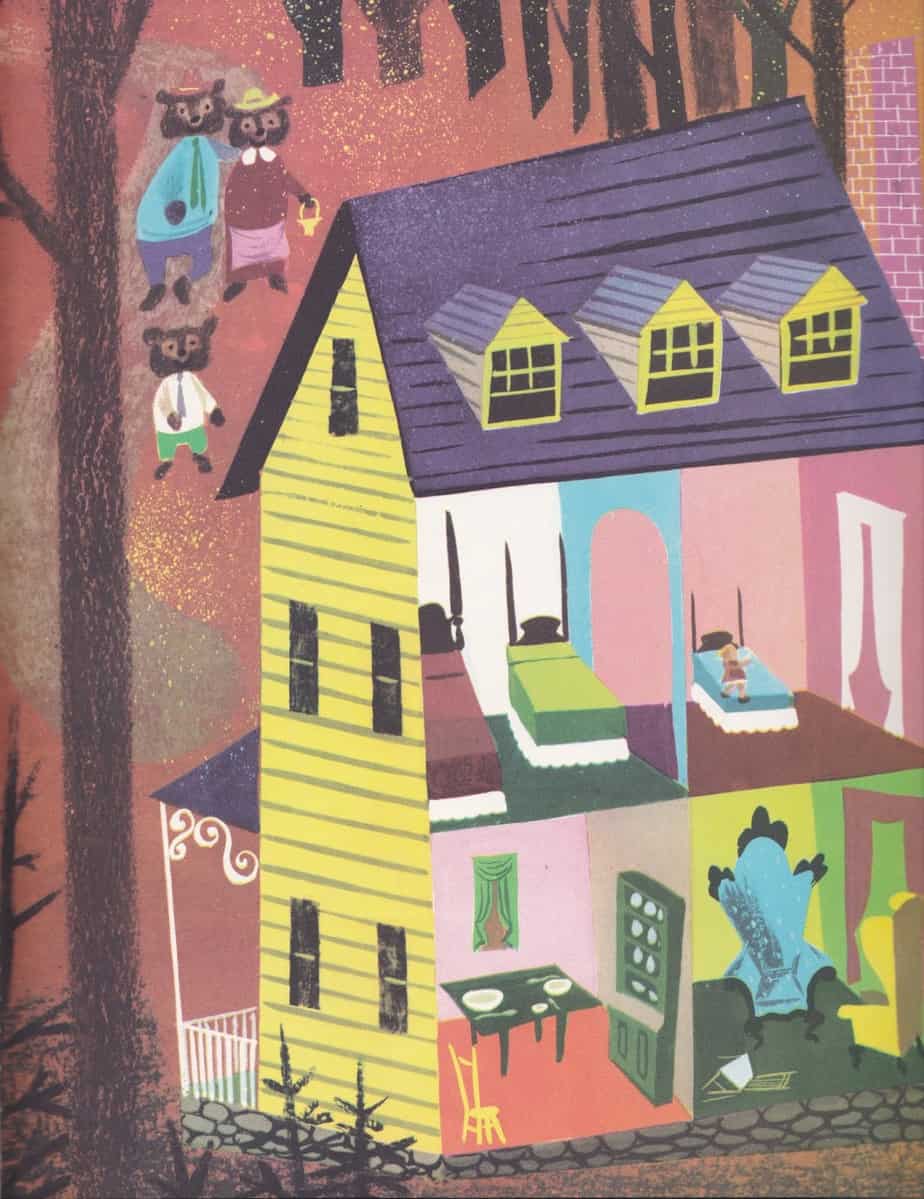
FURTHER READING
After researching the history of this fairy tale I wrote my own, called “The Porridge Thief”. I went back to the story’s roots and my version is an allegory of homelessness, which affects older women in particular, even today.
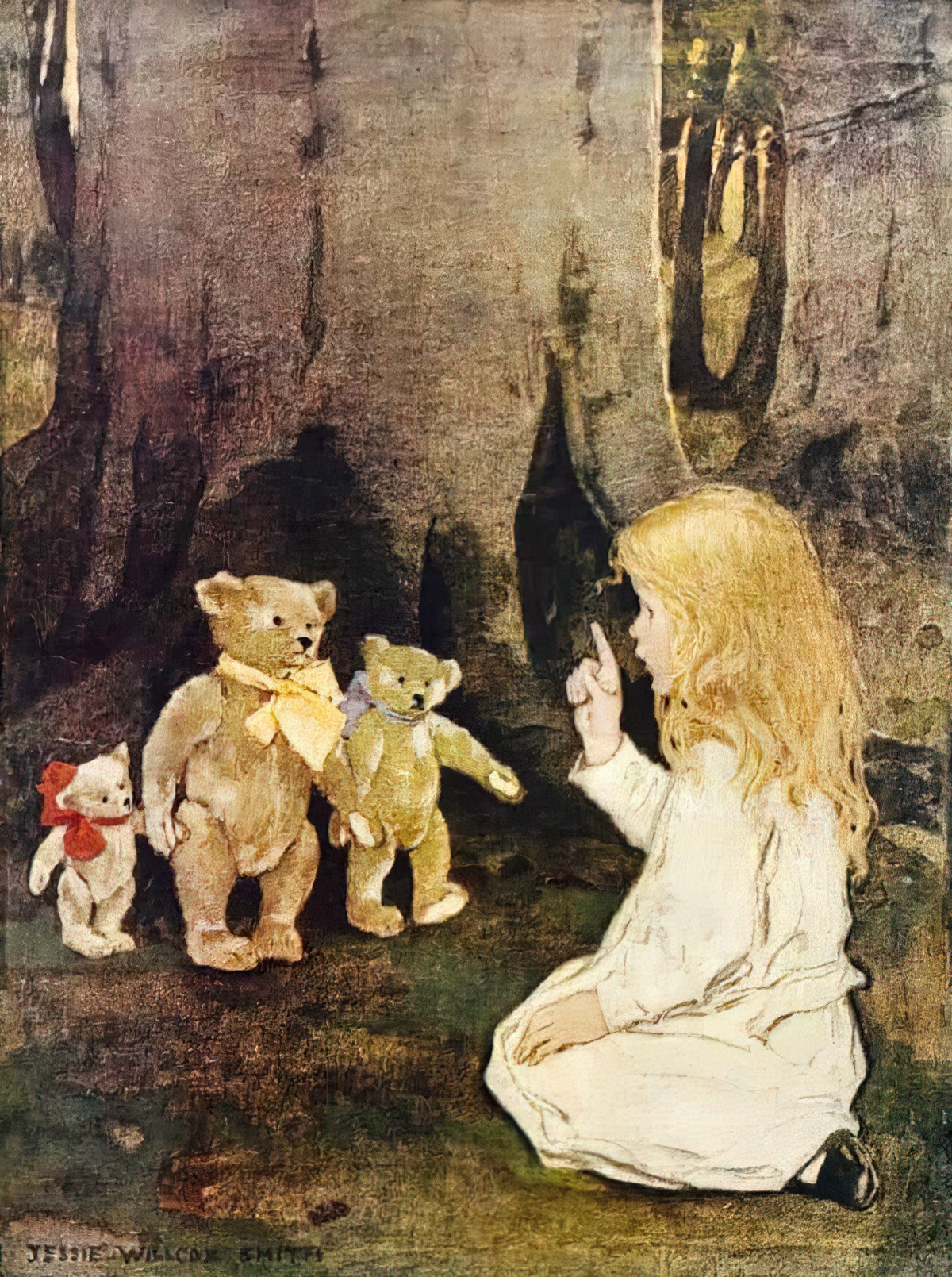
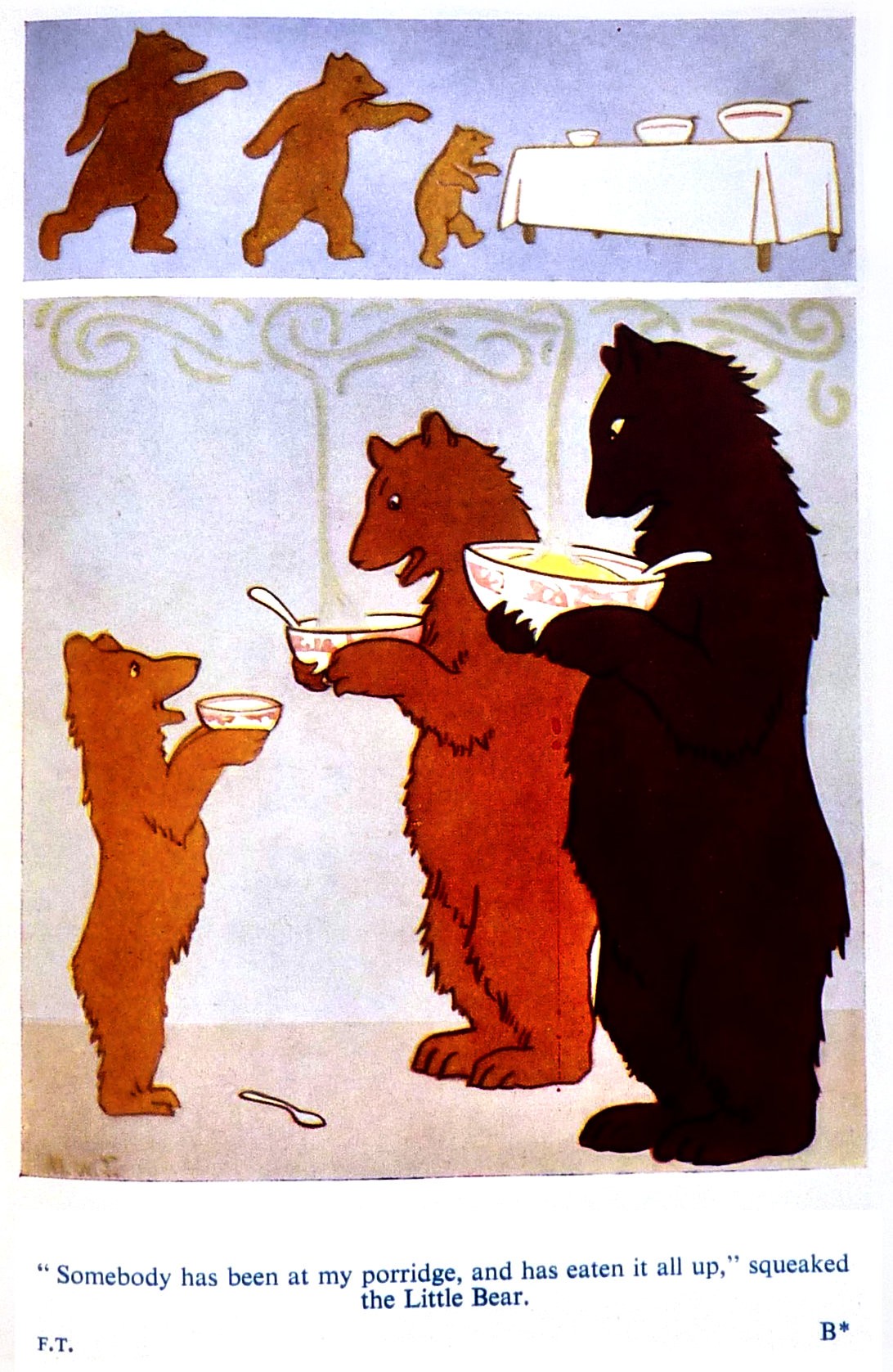
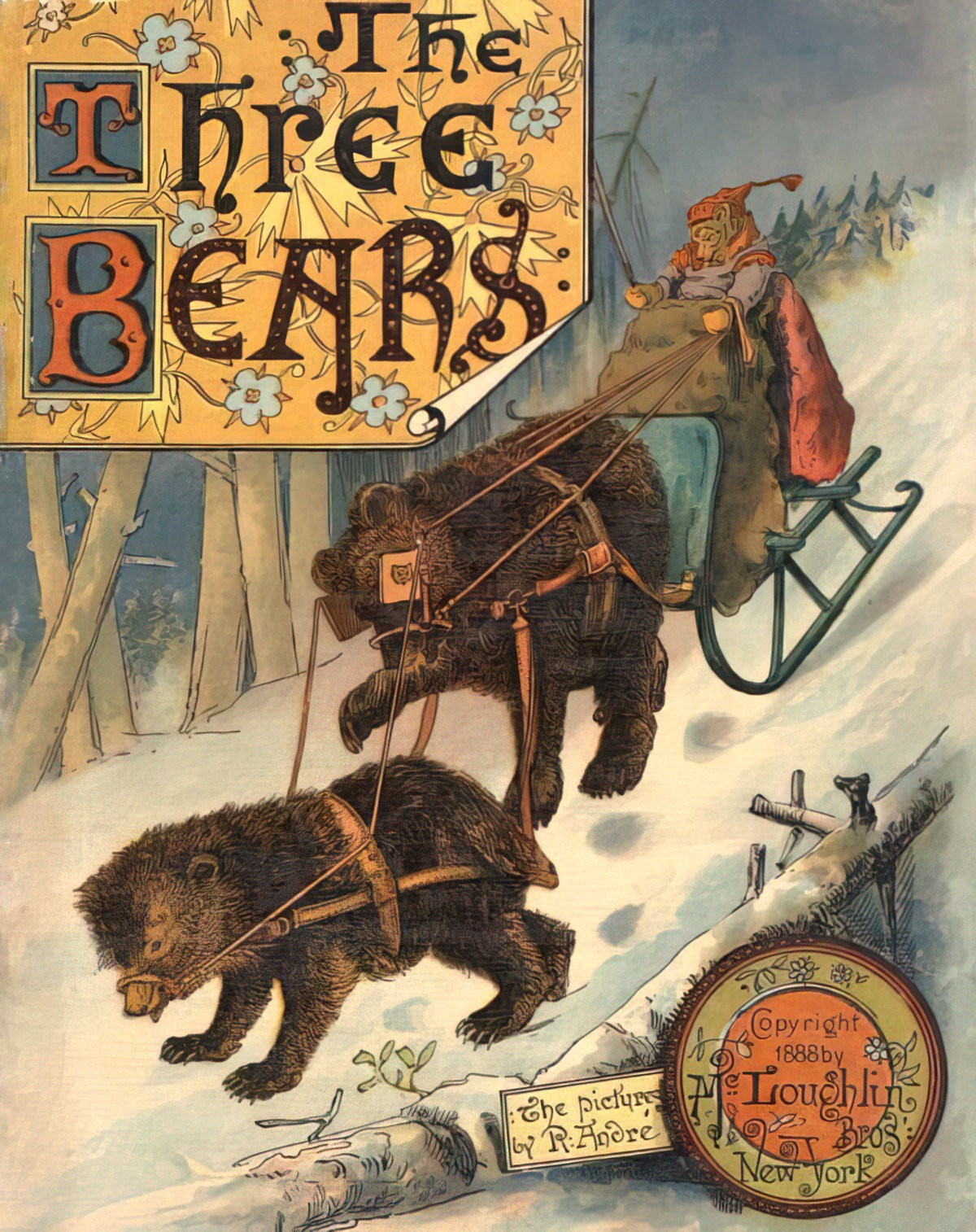
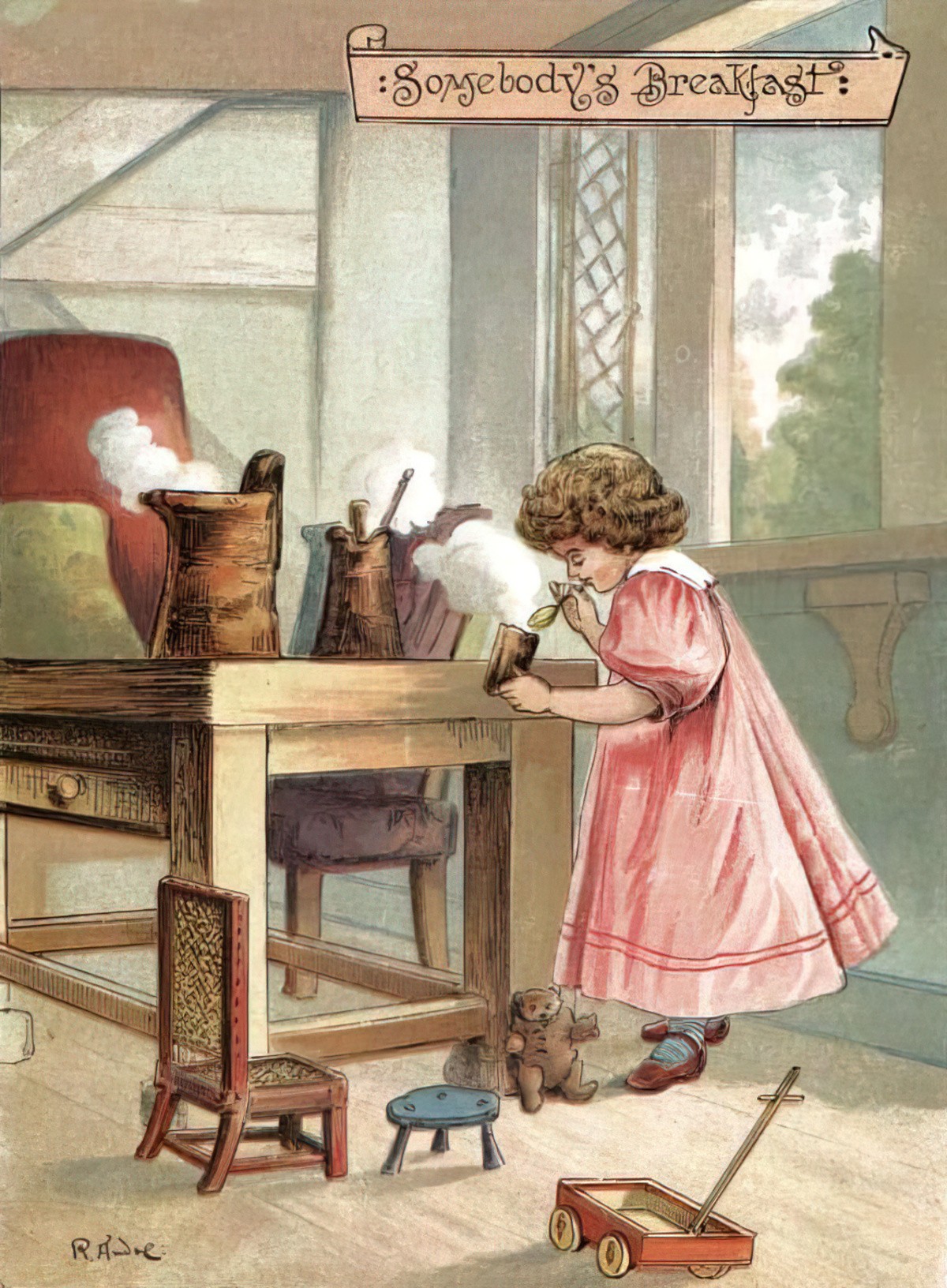
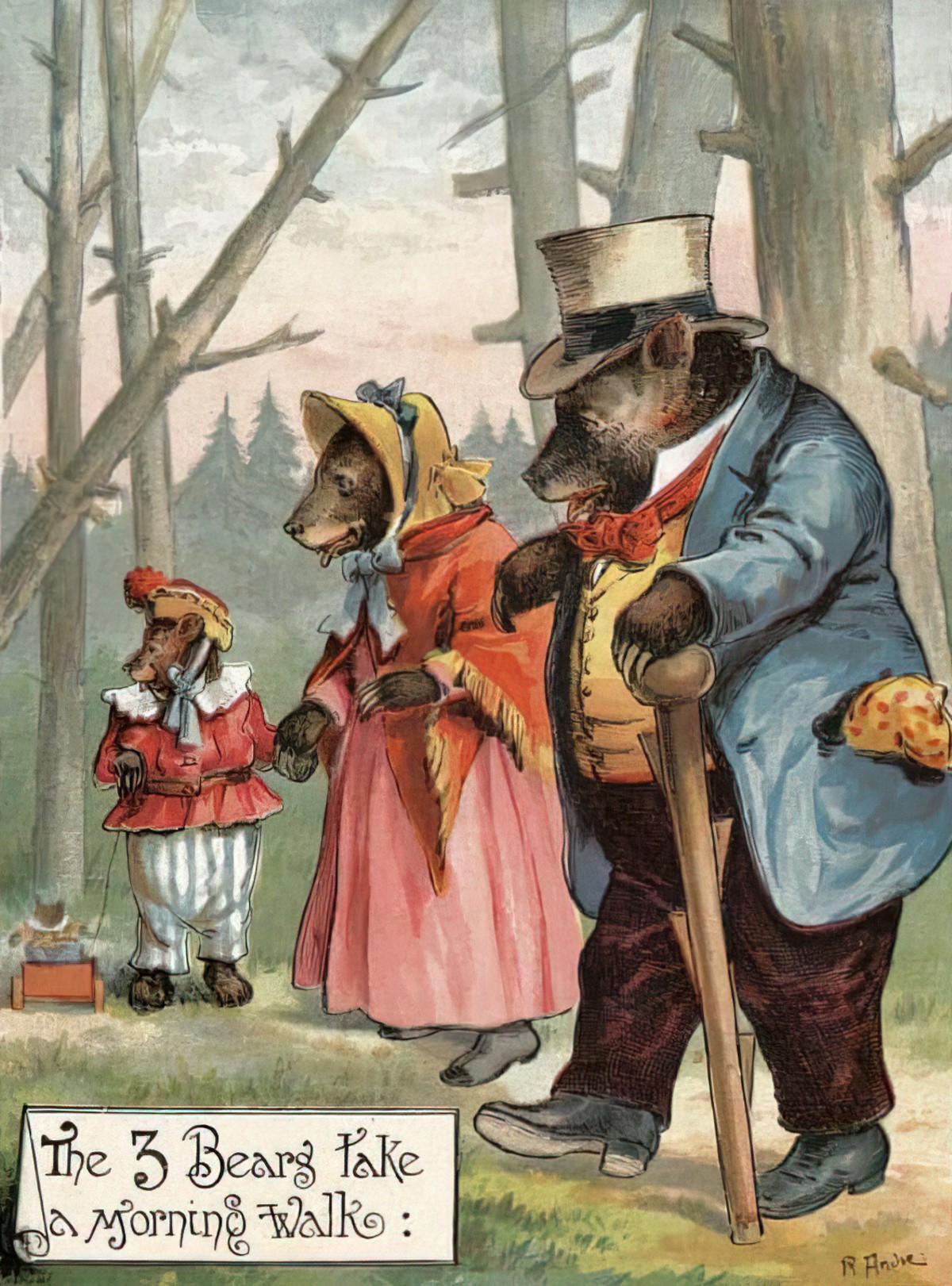
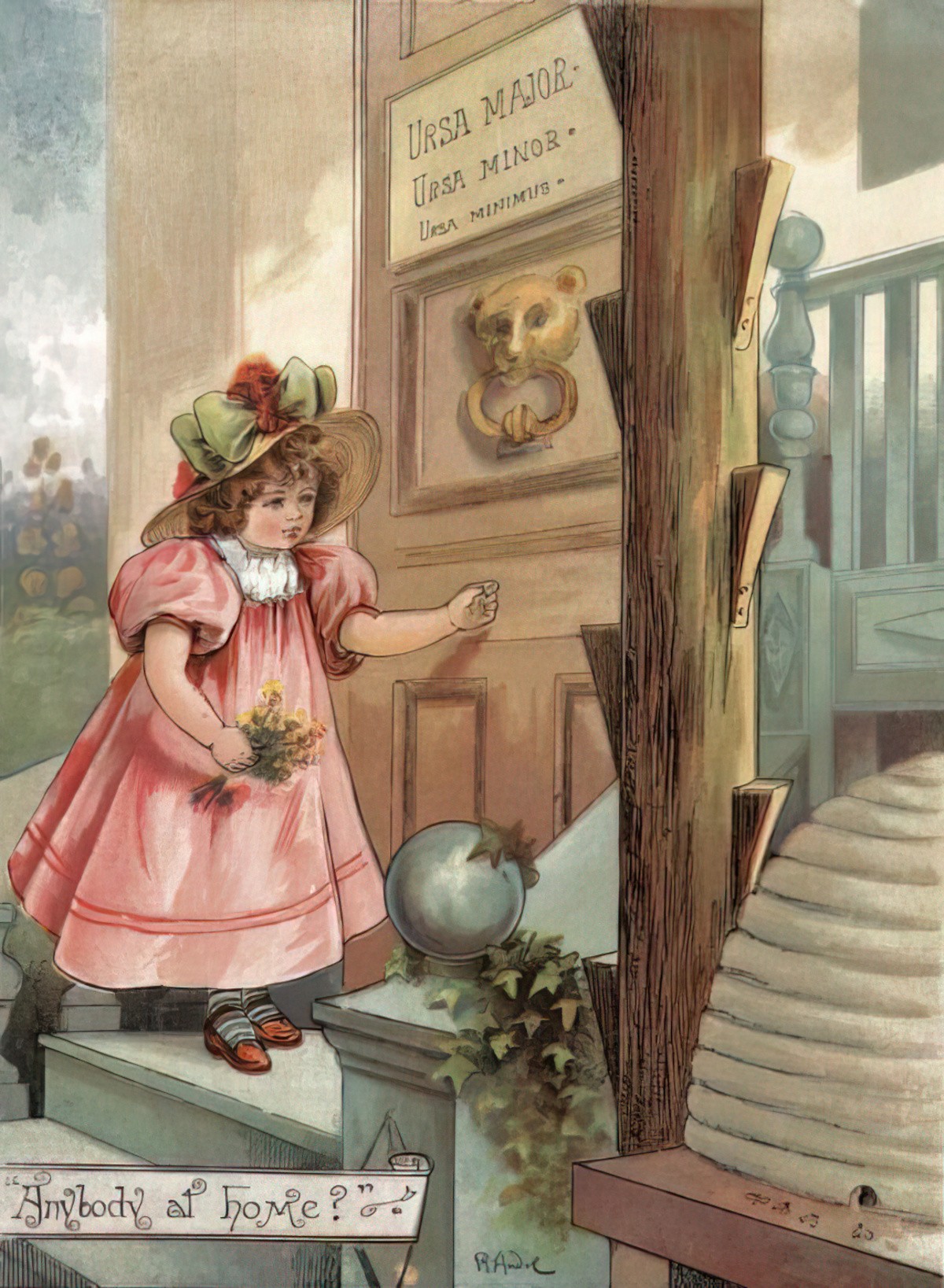
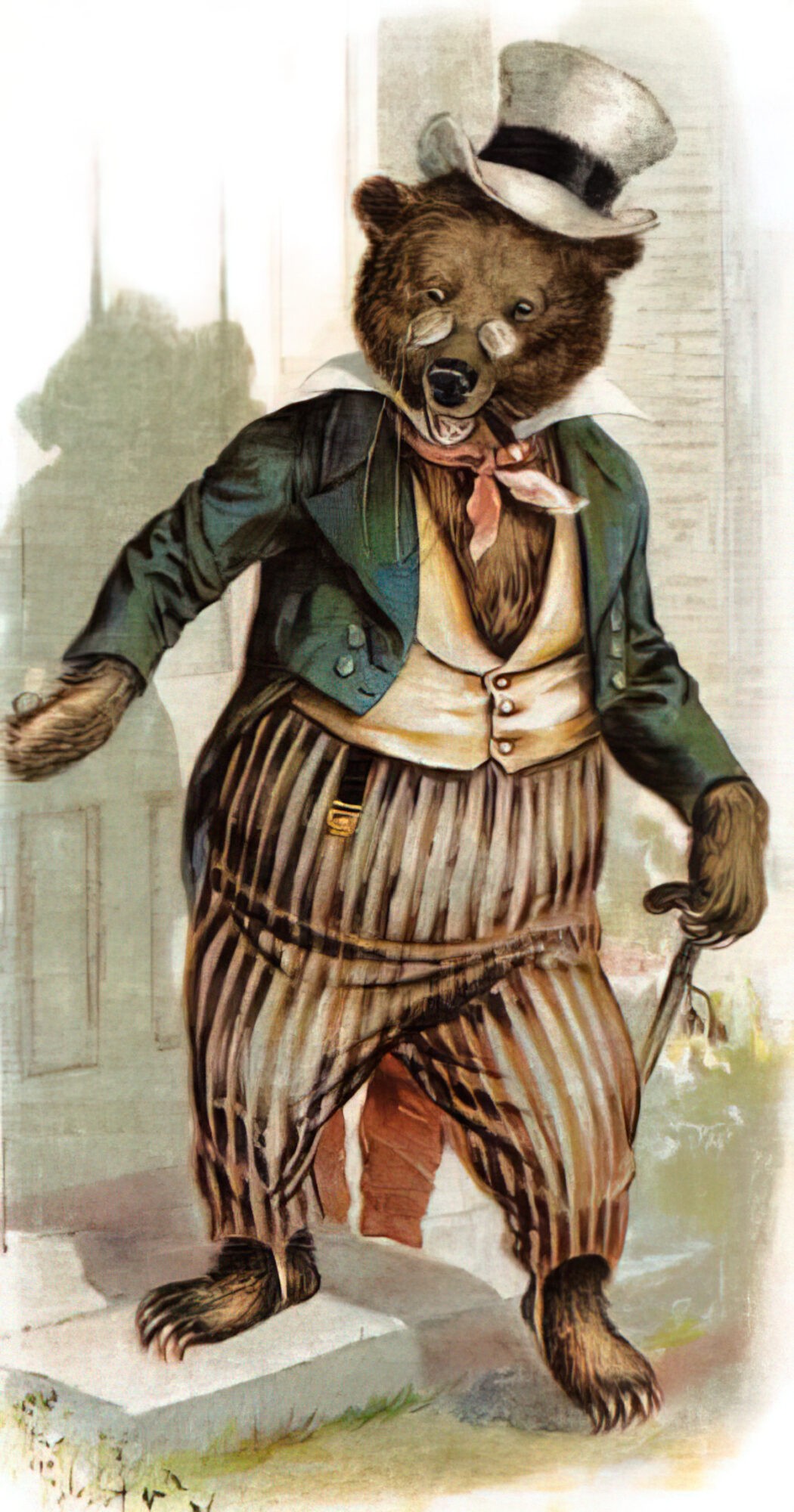
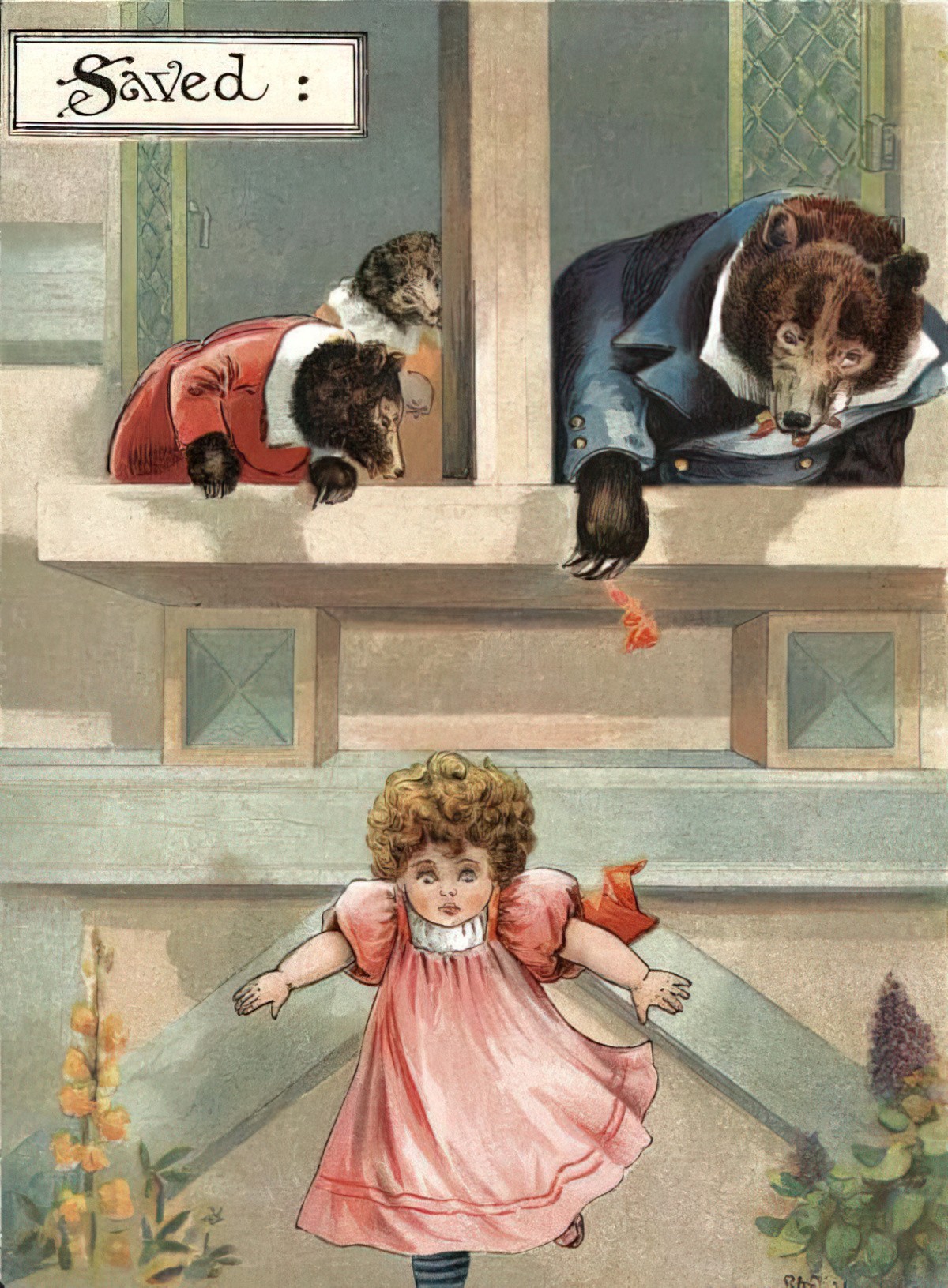
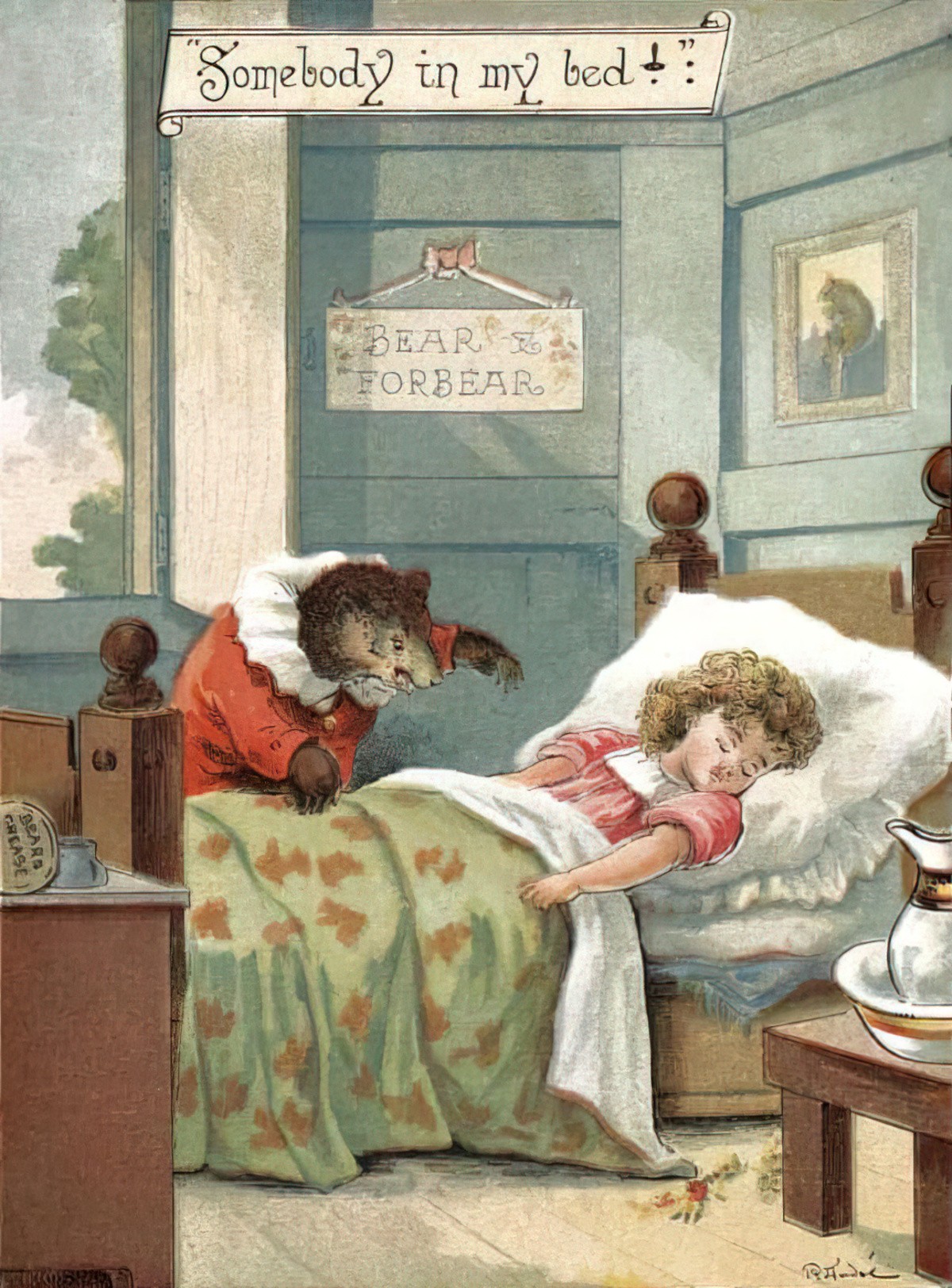
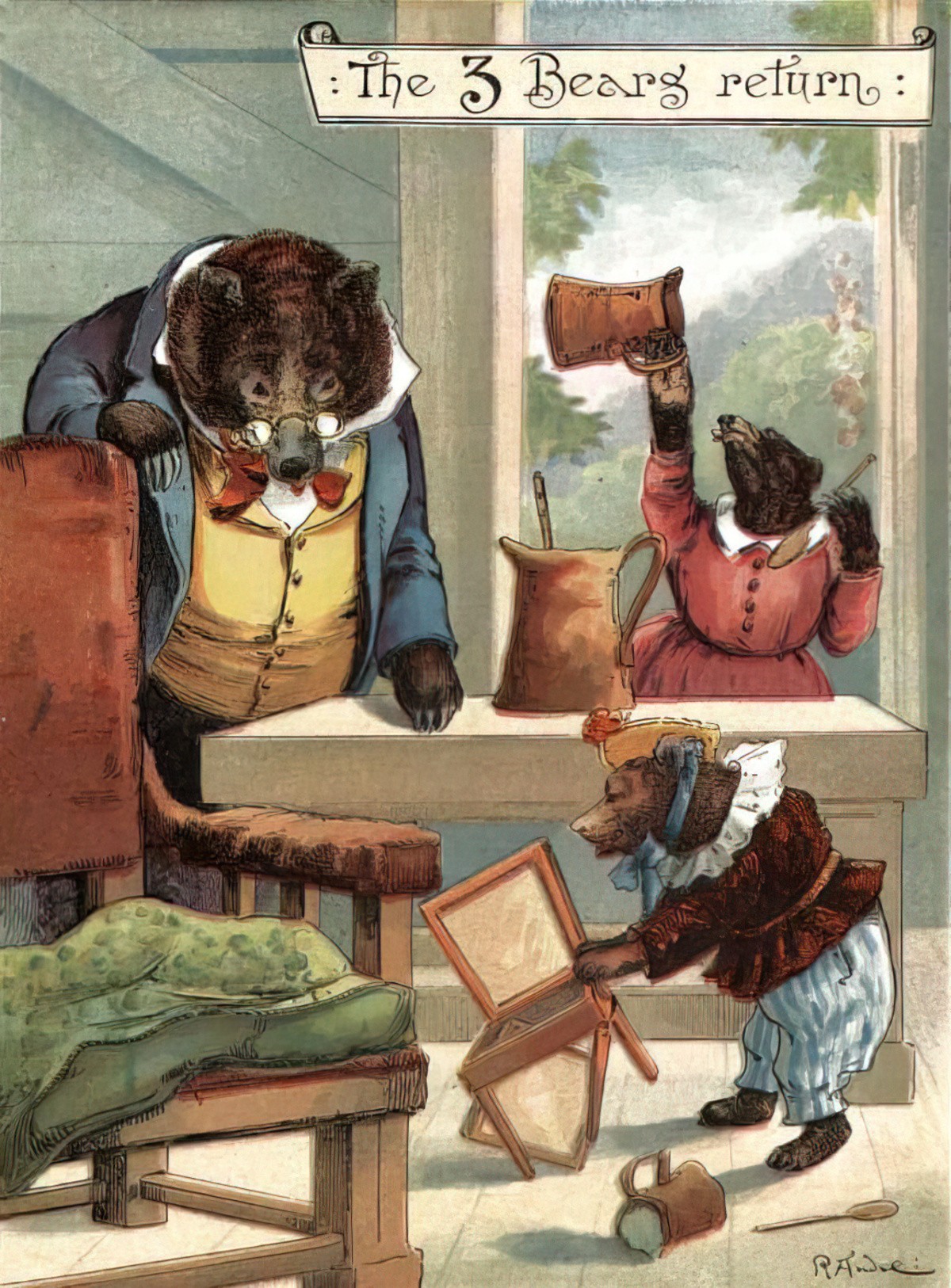
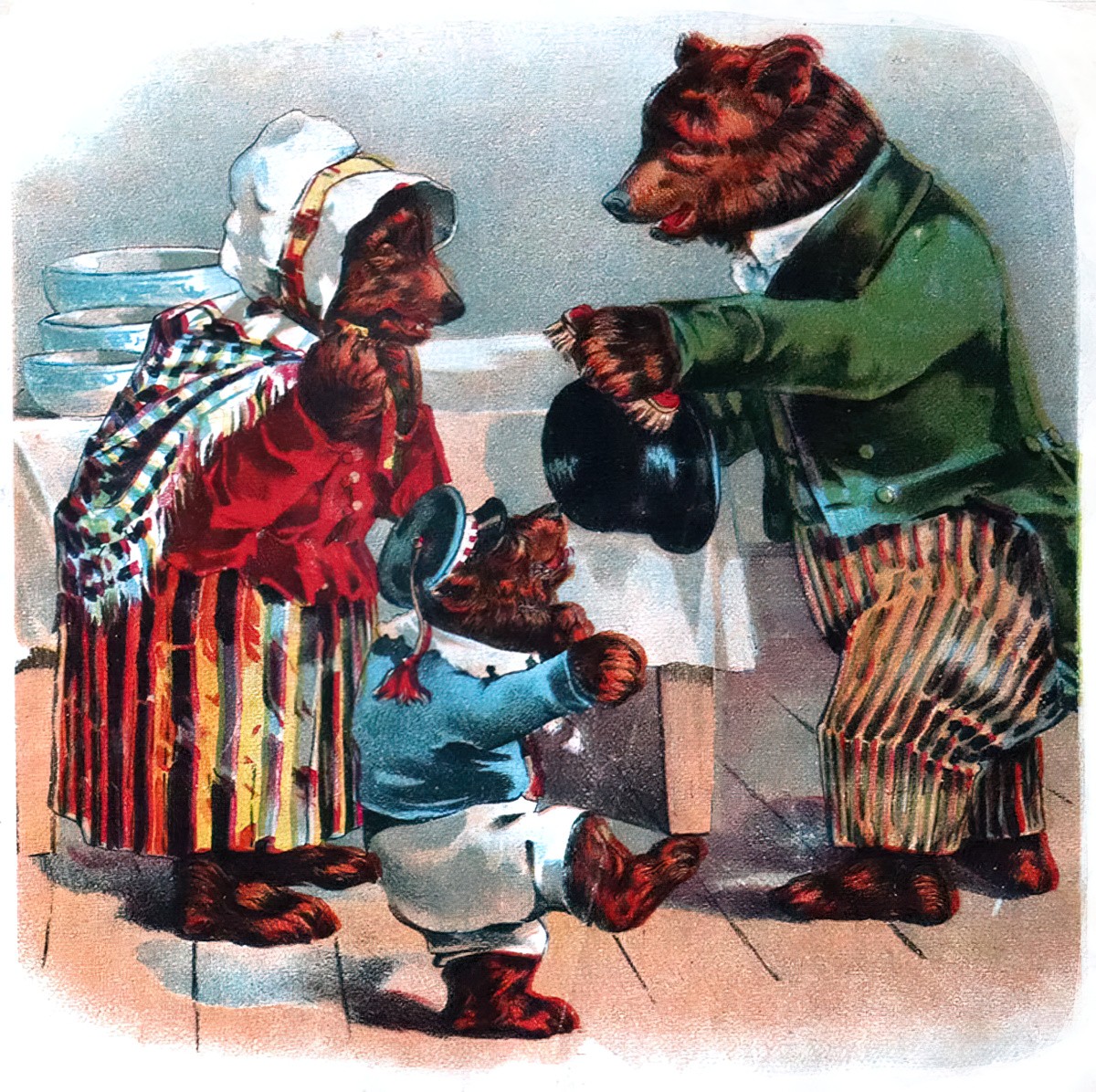
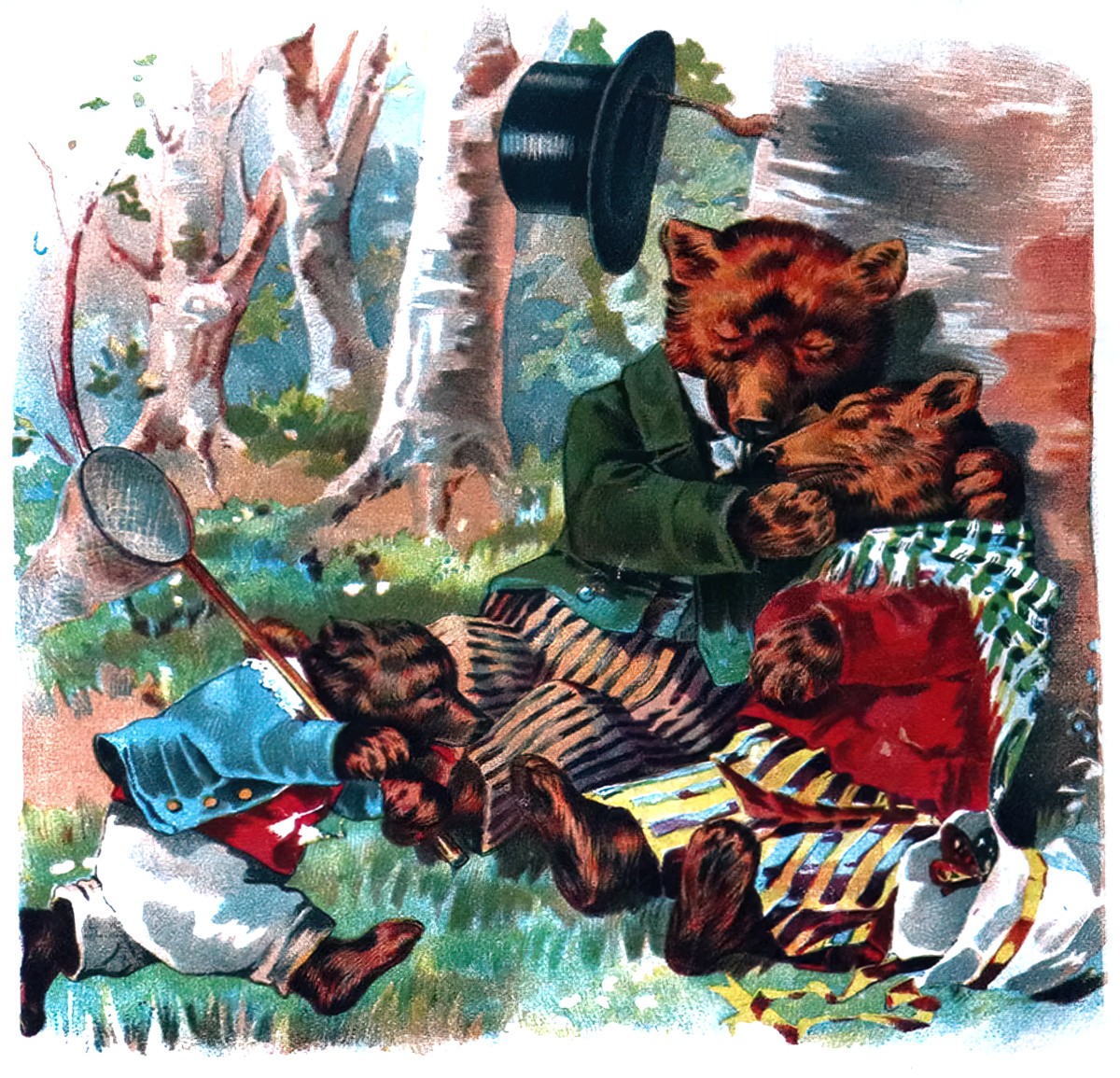
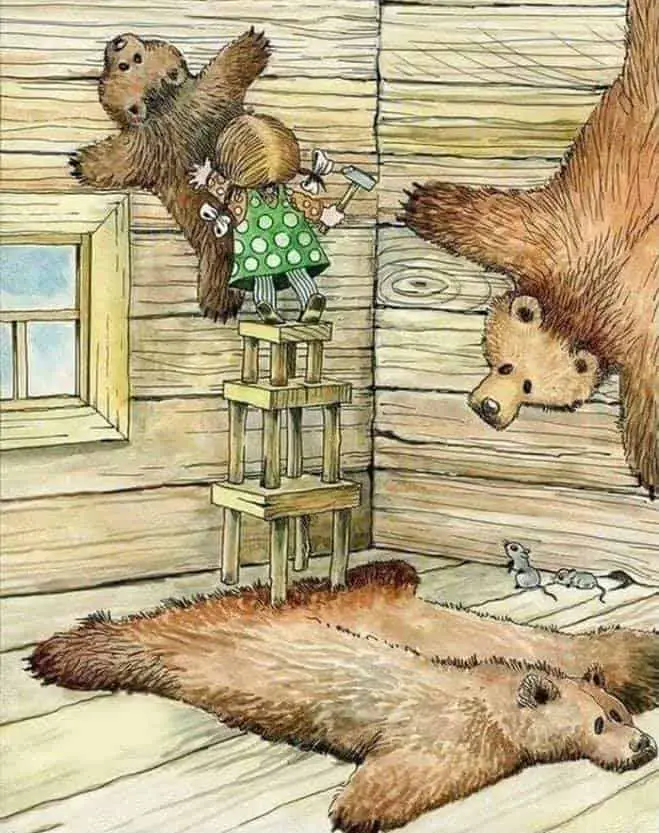
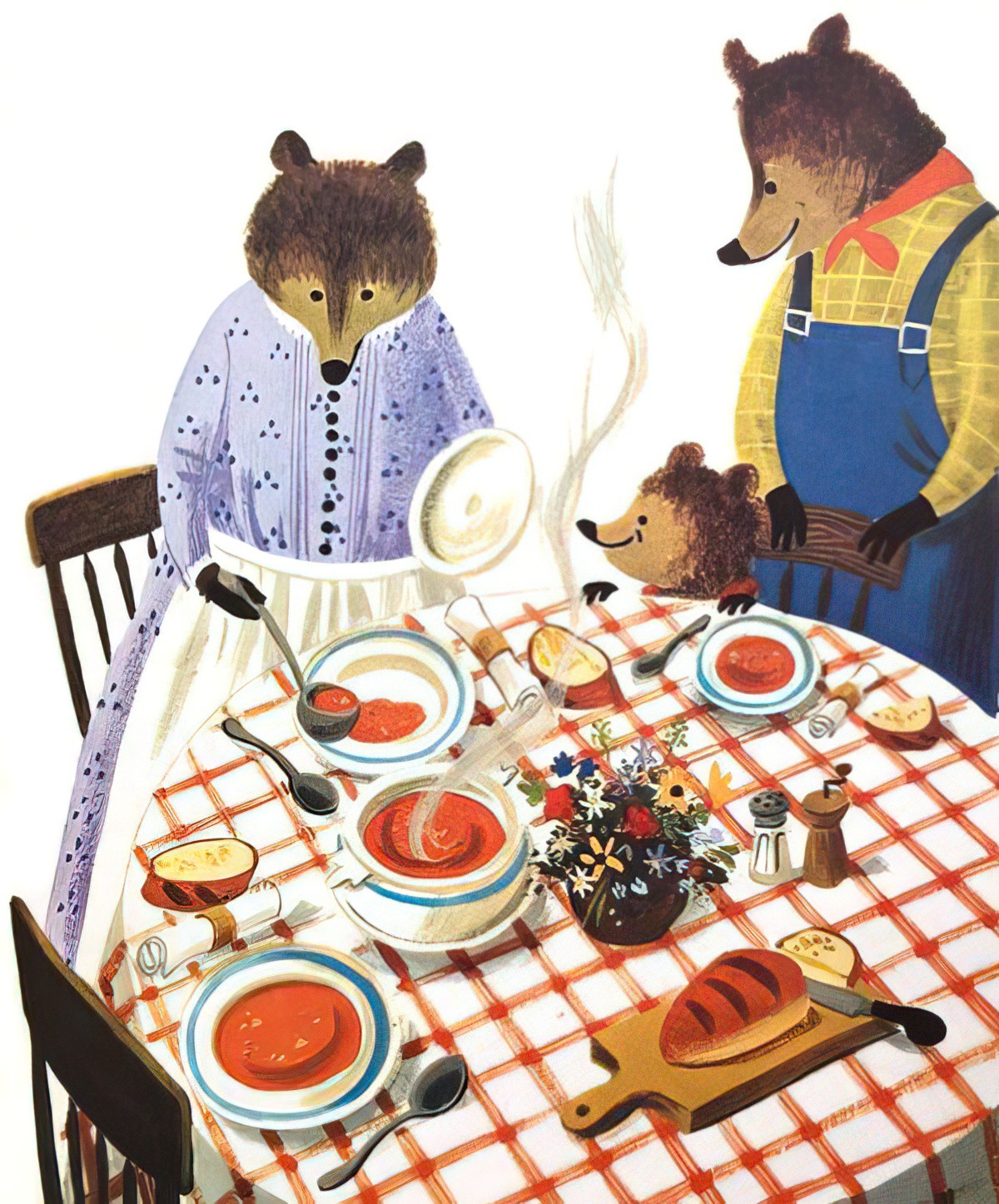
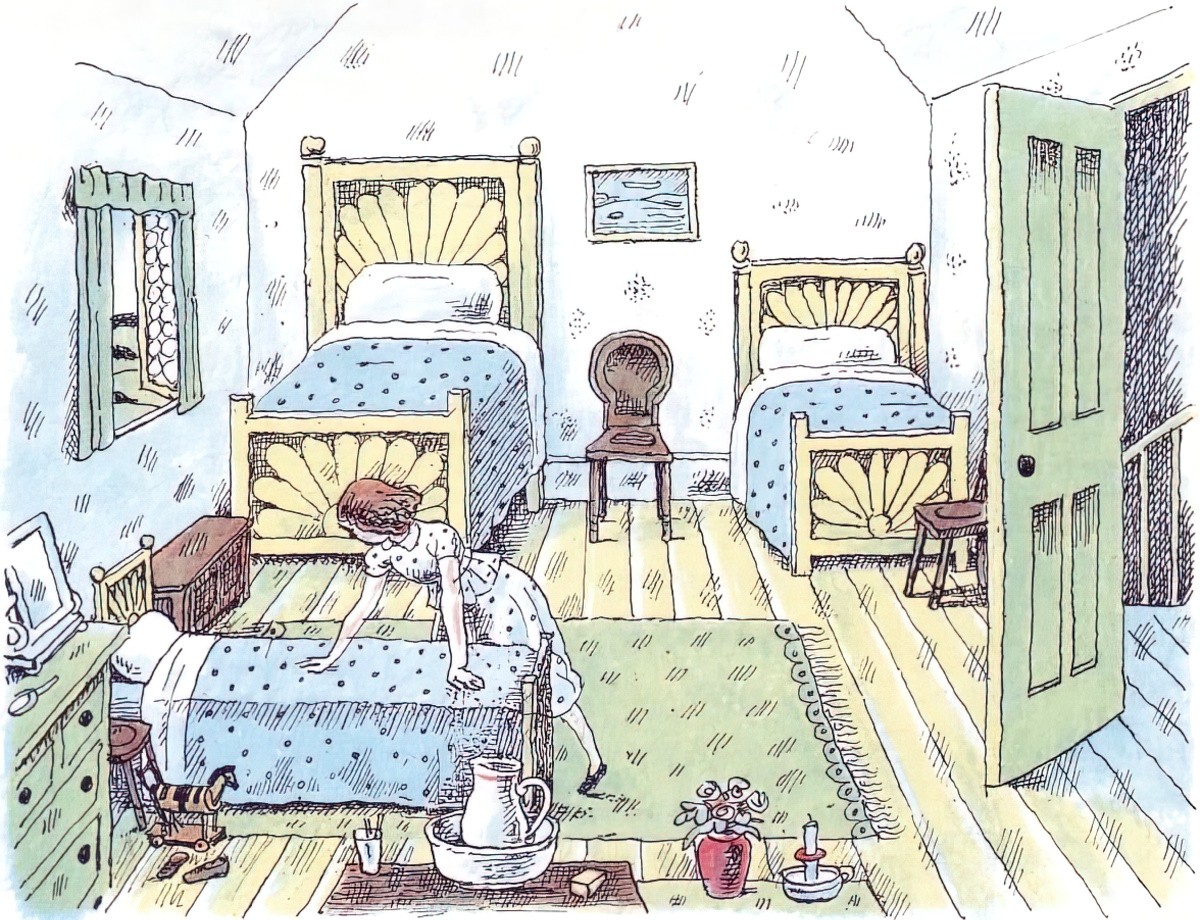
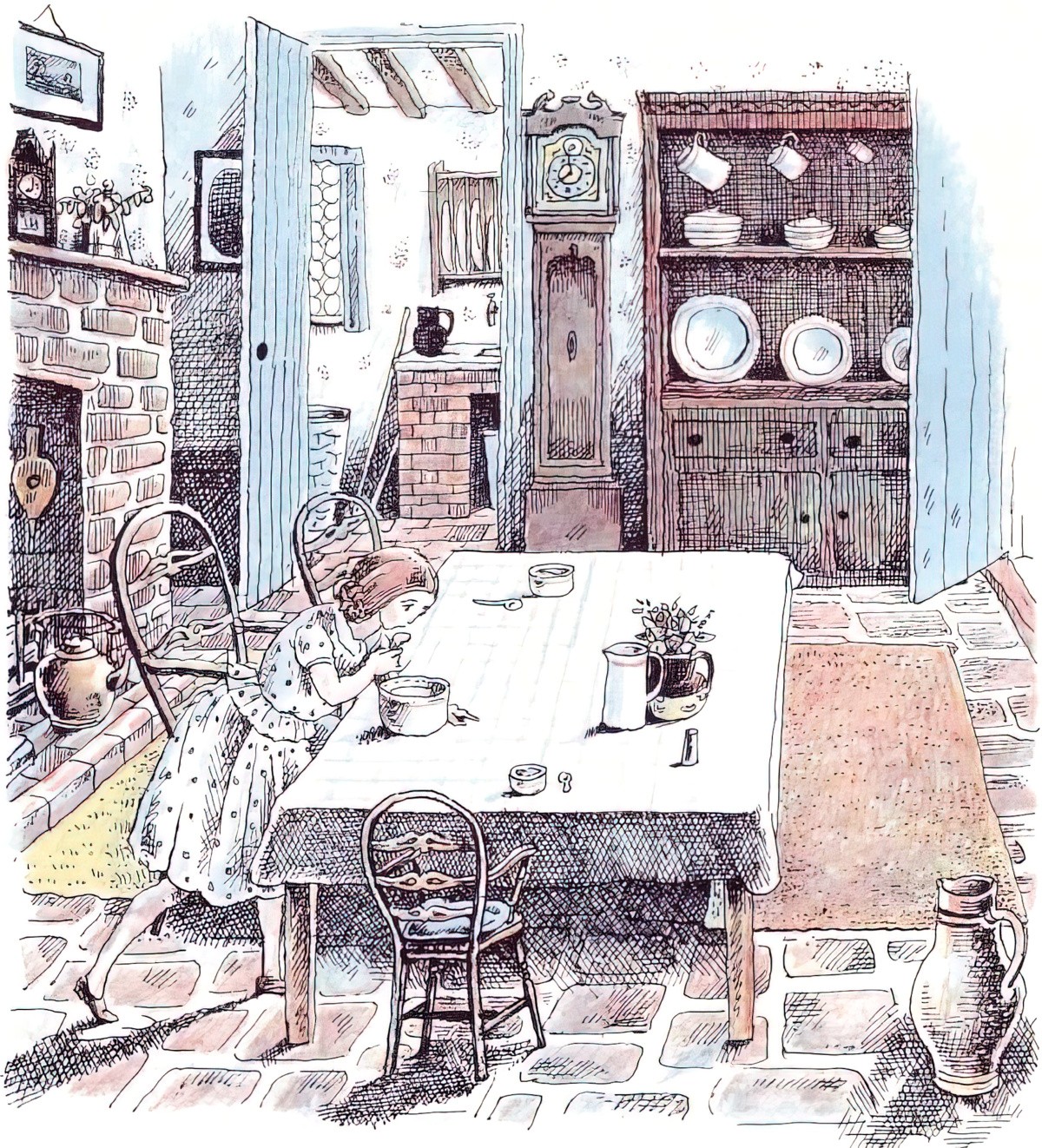
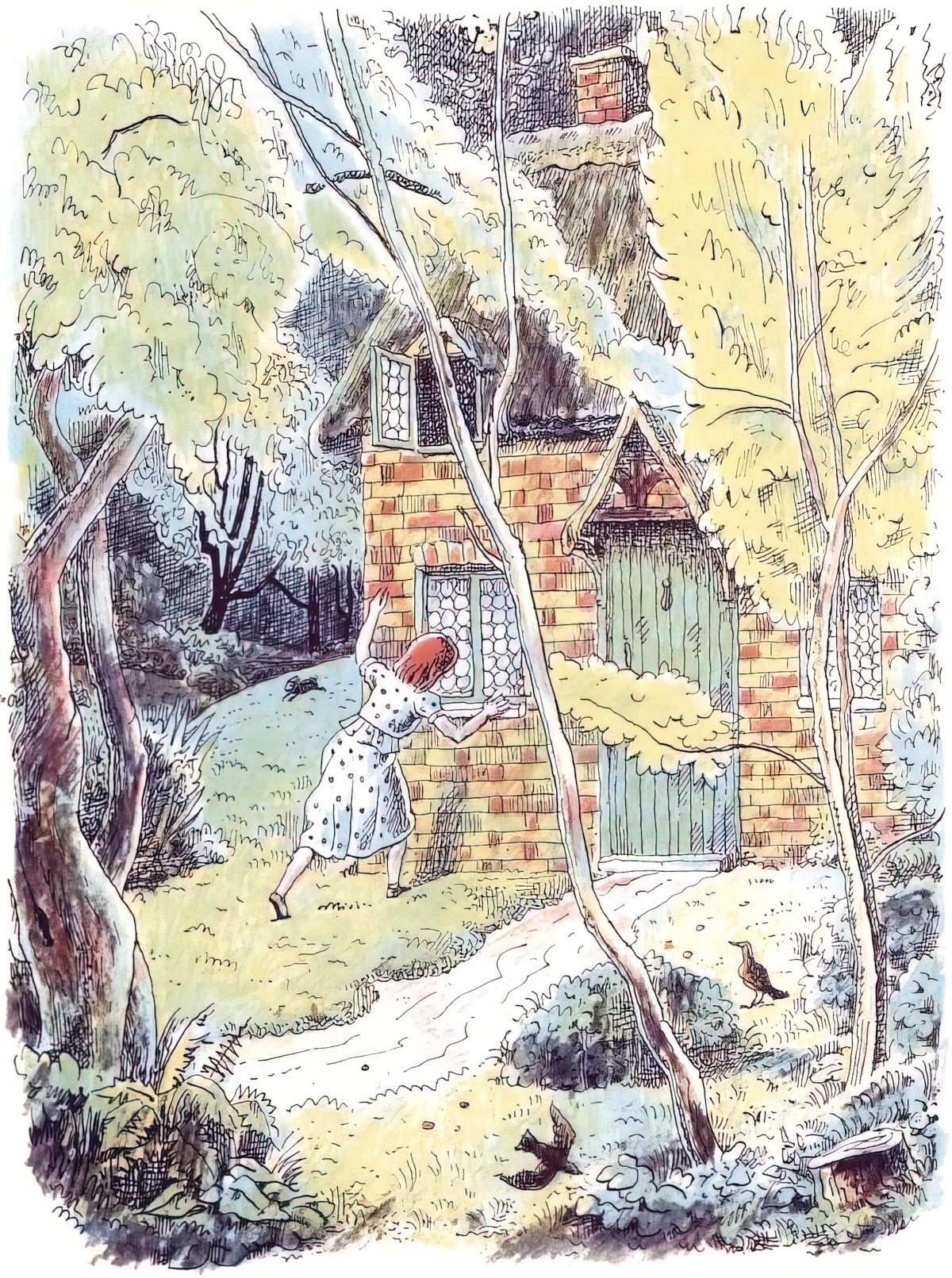
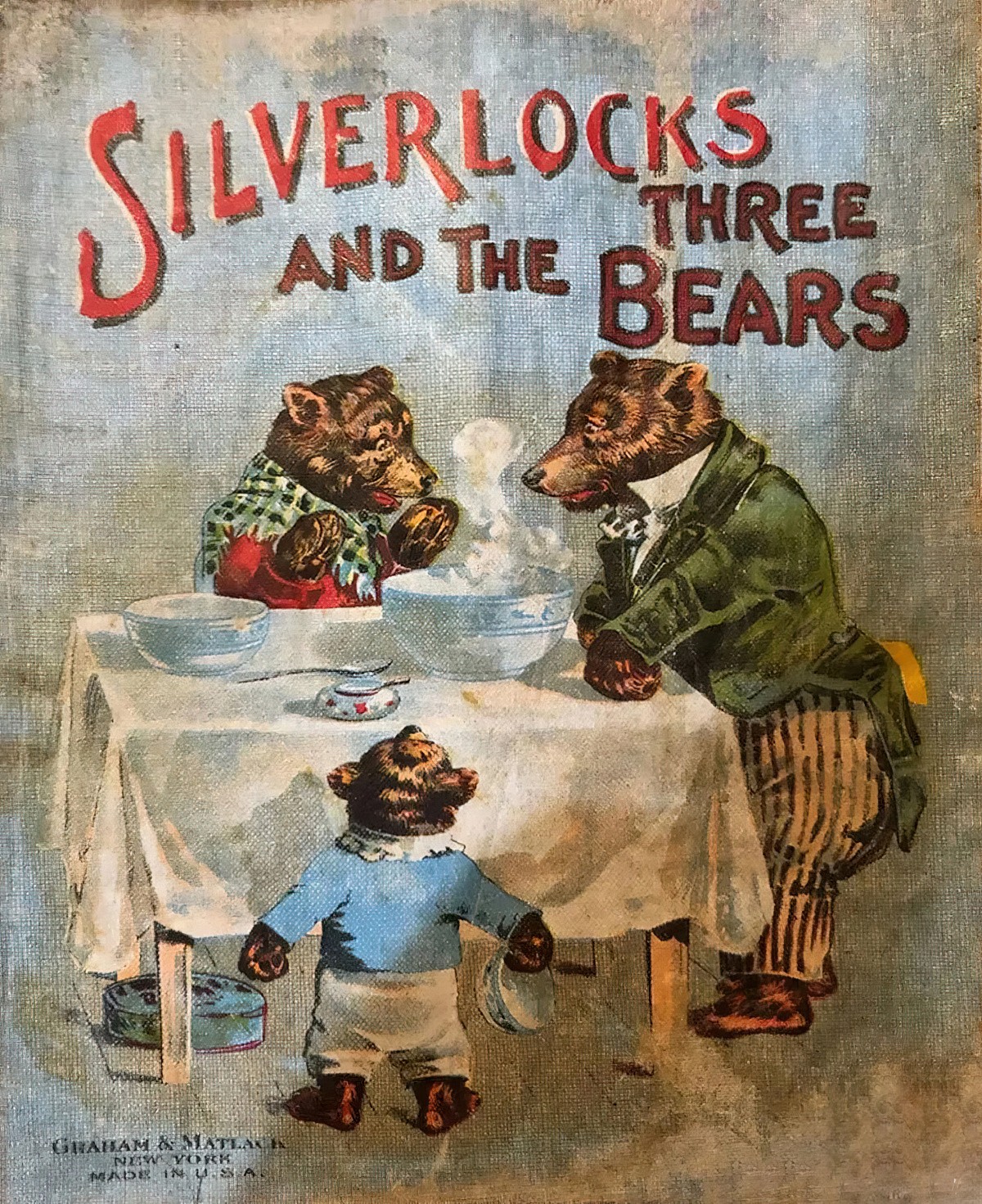
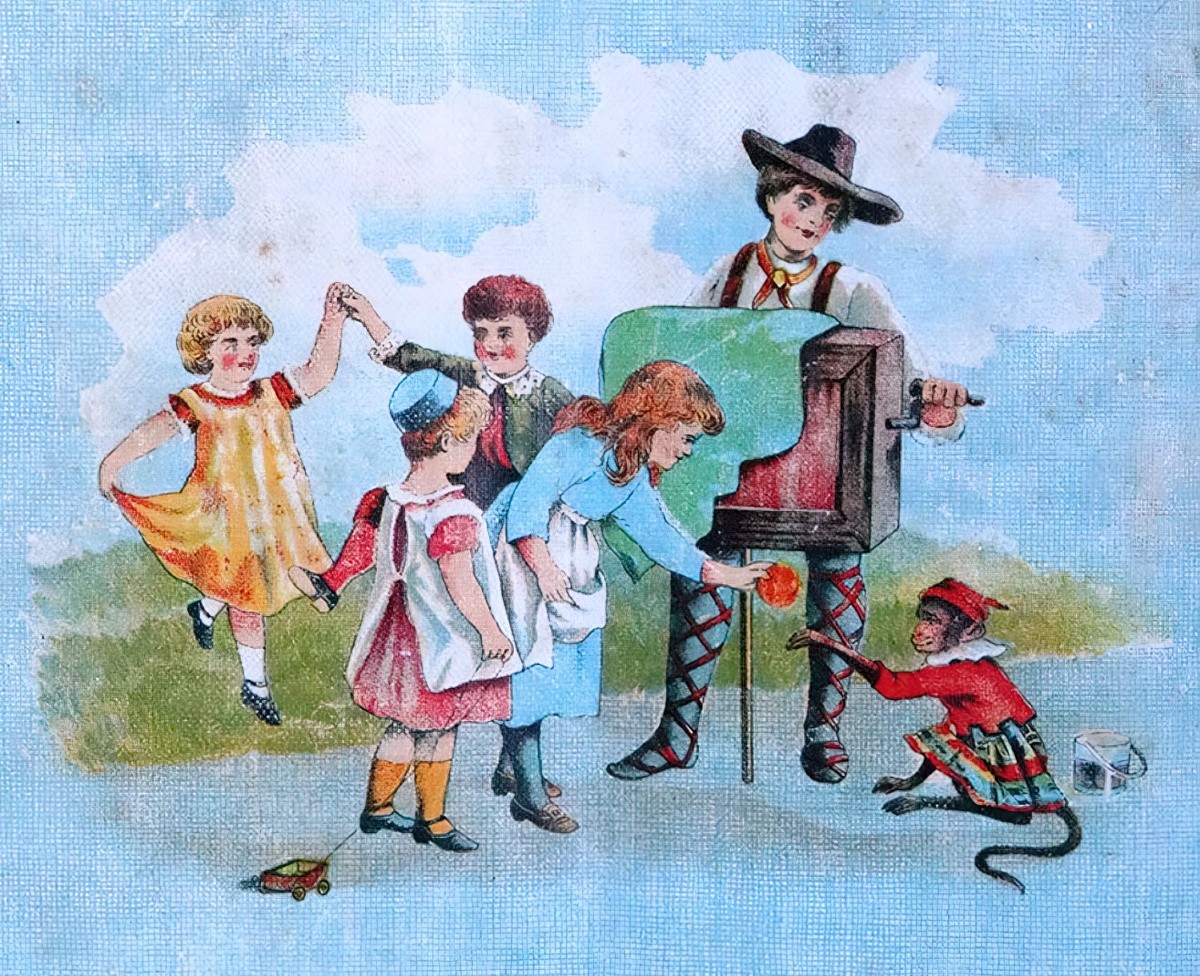
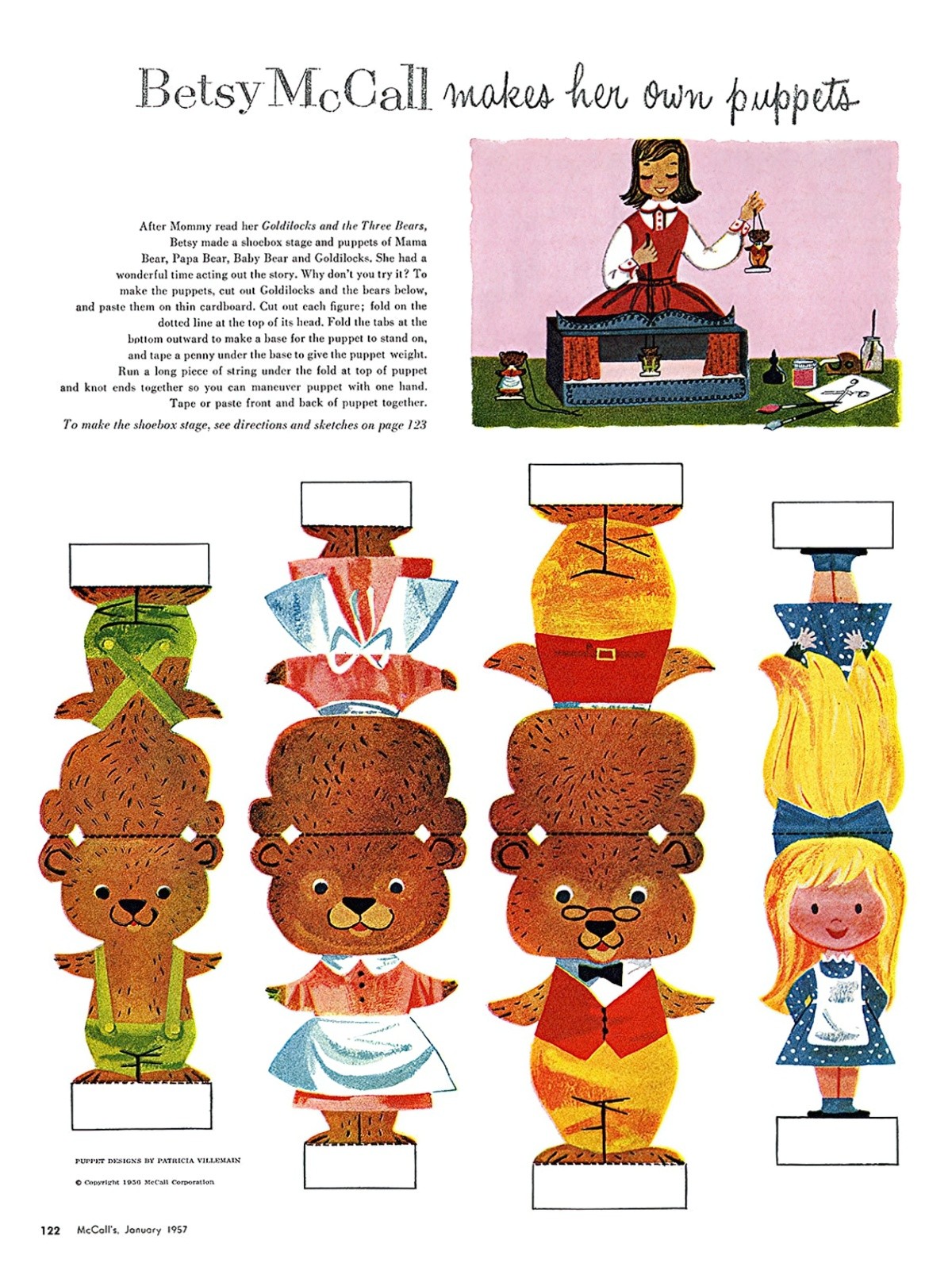
NOT RELATED BUT VERY INTERESTING
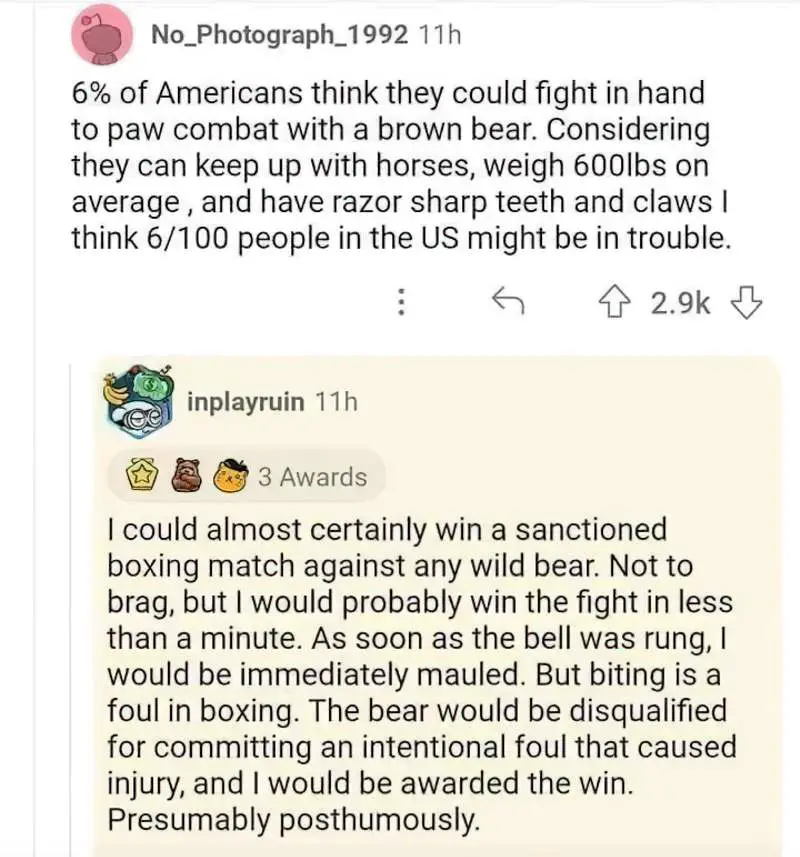
New Definition of The Goldilocks Zone Puts Earth Right On The Edge Of Habitability from io9
